#they could be divorced or widowed or still married and have three daughters or no kids or more kids than they know about
Text
Me: "I have finally digitalized what I've written so far for Hearty Grains, Pop Pods, Crunchy Salt and Sand Radishes. I can get back into writing!"
Brain: "Hey do you remember that funny post about a retirement home AU? Wouldn't that be really funny? Imagine old, grumpy Ingo and Emmet, wouldn't that be great?"
Me, sobbing: "That would be so fucking funny"
#they could be divorced or widowed or still married and have three daughters or no kids or more kids than they know about#they're both single again after 40 years and Emmet will make use of that#Elesa joins them coz why not let's all move into a retirement home#Emmet wants to commit crimes#who would suspect the old kind man doing it?#let's go on adventures again hey what do we have to lose?#Ingo's reading glasses that's what they're gonna lose#Emmet walks with a cane and is not afraid to use it against brats#their Pokemon have aged with them and are all cuddly lazy noodles#Colress also moves in and they're not amused#Colress is divorced absolutely#damn workaholic did you expect your wife to stay?#the wife also lives there and Emmet thrives on the drama#supply corps akari#retirement home au#Emmet#Ingo#Colress#submas
5 notes
·
View notes
Text
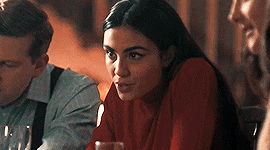
The Miriam and Matthew used to be married AU based on this post lol
@matthewsblue @dreamofme9 @xxskycrystalxx @spitefularmand
Diana knew Miriam and Matthew and Marcus were close. The three were colleagues and Marcus was Matthew's son.
It was Ysabeau, who referred to Miriam as 'her dearest daughter' and would look to her son with a pointed look that informed her something was happening between them.
It was Marcus who confirmed it and it explained his reluctance to get too close. In the woods behind her childhood home, he explained.
"She's my mother." Marcus said, his eyes more serious than he had ever been, "She and Matthew were married."
She did not know that.
"She's his wife?" Sarah asked sharply. Her esitmation of Matthew had gone down even further.
"My father has a knack for secrets." Marcus continued walking, and she walked with him, Sarah and Emily close behind intruiged.
"They were married until 1878 when they divorced." Marcus said, "Or rather, my brother and I asked them too."
"Does he love her?" Diana asked quietly.
"Of course, they still love each other." Marcus said frankly, "But not like that. Not anymore. Not for a long time, I do not think."
Matthew and Miriam were two halves, so alike which is why they had worked so well and why they fell apart.
They saw the two speaking in a hushed language Diana did not understand. They stopped when they sensed the group. Marcus smiled at the two of them, waving. They both raised their hands and waved back to him.
She felt like some sort of intruder in an intimate moment as if she was not with Matthew now.
"Hey, Miriam." Diana greeted awkwardly. She had used her magic on Marcus' mother.
"Dr Bishop," Miriam said stonily.
"Why did you not tell me about the tea Marthe had you make?" Matthew demanded sharply.
"Because it didn't matter." Diana protested, "There was no harm done."
"You mean the contraception tea?" Emily asked.
Matthew looked to Miriam, who remained unbothered, her eyes bored as he pulled out his phone, and marching away.
"It was not your business to get involved." Diana hissed, angry with the ancient vampire.
"I'm already in it, Diana. Your relationship with Matthew puts every creature in this property in danger. It will change everything, whether you two have children or not. And now he's brought the Knights of Lazarus into it." Miriam was as furious as Diana was, if not more, her brown eyes alit, as her eyes darted to Marcus.
"The more creatures who sanction your relationship, the likelier it is that there will be war."
"Don't be ridiculous - war?" Diana scoffed, believing she was being overdramatic.
"Your and my ex-husband's actions could get my sons killed," Miriam said sharply, "Since you walked into the Bodleian, he's lost control of his senses. And the last time he lost his senses over a woman, my first husband died."
Diana was taken aback by that.
"What happened?" Sarah asked, sympathy and interest clear. She already did not trust Matthew.
"Umi..." Marcus said quietly. He was by her side as if wishing to stop a fight.
"Would you like to know how Matthew and I' 's marriage began? It was because my husband was executed in his place the last time he was so obsessed with a mortal woman - Eleanor. He accidentally killed her when he and Lucius got into a fight. Someone one had to pay, and because Matthew was a grandmaster, he could not. So Bertrand did."
"I am sorry. I am. But I am not Eleanor, and this isn't Jerusalem." Diana said.
Miriam nodded, a look in her eye that reminded Diana of a lioness protecting her prey, "It is yesterday to me. Matthew likes wanting what he should not have, and he will always kill for it. Now, I have two sons to keep alive whilst Matthew obsesses over you. And I do still love him. But I will not hesitate to eliminate any threat to them."
"Wait, so you still married him?" Saraha asked,
"A brother must take care of his brother's widow." Marcus said as if it was simple, "And besides, they got me!" He grinned at Miriam, whose eyes softened at him.
"Get a haircut, Thoams." Miriam simply said to him and he pouted, running his hands through his messy brown hair.
#matthew x miriam#miriam x matthew#au#all souls au#adow au#marcus whitmore#Matthew Clairmont#miriam shepherd#all souls trilogy#adow fic#a discovery of witches#diana bishop#sarah bishop#emily mather#book 1: A Discovery of Witches#diana x matthew#if i'm obsessed with this ship you all have to suffer
15 notes
·
View notes
Text
THE PALOMINO DYNASTY
We're taking a look the famous family and how all the Palomino kids are connected.
Even those who don't keep up with every headline or social media post in pop culture are aware of the Palomino dynasty. Patriarch Alessandro Palomino has built an empire, his eleven children parlaying their reality TV show The Palominos into booming careers. The next generation looks like it will be just as strong, too, so with this ever-growing brood, it's only natural that one could forget who's who and which sibling has what children, etc.
Whether you're new to the family's dynamics or just can't remember who's given Alessandro the most grandchildren, I a here to help. Below we'll break down the entire Palomino family tree for a complete guide to the dynasty.
ALESSANDRO PALOMINO

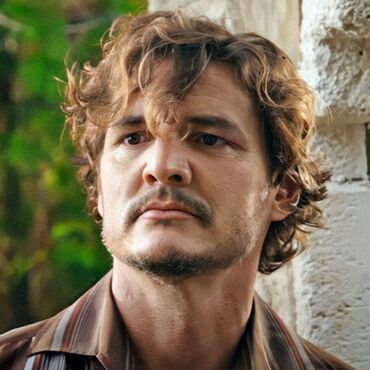
Of course we have to start with the patriarch, Alessandro Palomino, who made a name for the family long before their reality television debut
He has one child from his first marriage, which was ended shortly after the birth of his eldest son, Enrique, after she died in childbirth. Her identity has never been revealed by Alessandro to the public, the multi-billionaire stating that he "wished to keep that part of his life private". What we do know from snippets over the years is that she was also from Brazil and was a housewife for the duration of the marriage.
He married Brazilian model Dalma Callado a few years later and had three children with her, Jenna, Colin and Mila. When the couples youngest was a year old, Callado was involved in a head-on collision that would take her life, leaving Alessandro a widow for the second time.
A fling with a flight attendant, who's name has been kept private by Alessandro by her own request, resulted in the birth of his third son, Raphael.
Alessandro began seeing Salma Hayek shortly after Raphael's birth. The couple married in 1992 and welcomed their eldest daughter early the next year. They would go on to have 6 kids, Tatiana, Adriana, Tyler, Joseph, Harmony and Irina, before officially separating in 2000 after the birth of their youngest daughter.
Late during his marriage to Salma, Alessandro had an affair with French actress Madchen Amick, which came to light when she announced the birth of their daughter, Phoebe.
Aside from his complicated personal life, Alessandro established his fashion line, Palomino, in 1982, which has since become among the most luxurious and wealthiest fashion lines available. Since it's establishment Palomino has expanded into various lines such as Palomino Swim, Palomino Beauty, Palomino Lingerie, ect.
As of 2023 Alessandro's personal networth is estimated to be around 80 billion USD.
ENRIQUE PALOMINO
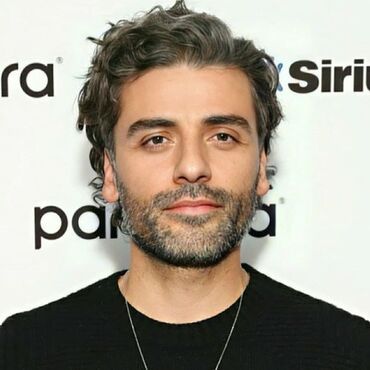
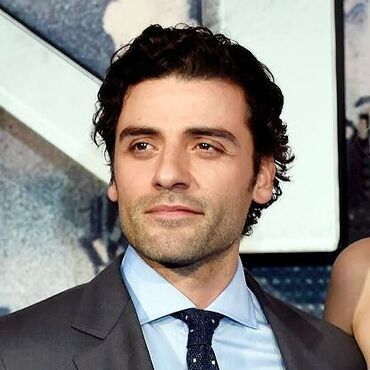
Enrique is Alessandro's eldest son. He has two children with wife Alessandra Ambrosio — Anja Louise and Oscar.
Enrique has kept a famously low profile despite his family's fame, He has taken up several acting roles but is known to stay out of the media. In 2023 He confirmed that he is still working with the Palomino brand behind the scenes, and raising his children.
Enrique was born June 9th, 1978, and is 45 as of 2023.
JENNA PALOMINO


Jenna is Alessandro's eldest daughter. She has two children from her marriage to Channing Tatum — Everly and Callum.
She split with her husband, Channing Tatum, in 2019 after welcoming their youngest child. Ever since her retirement as Victoria's Secret angel in 2017, she has done occasional modelling jobs for other brands such as Vogue and Louis Vuitton, however has been primarily focused on the Palomino Brand.
Jenna was born December 3rd, 1986, and is 37 as of 2023.
COLIN PALOMINO
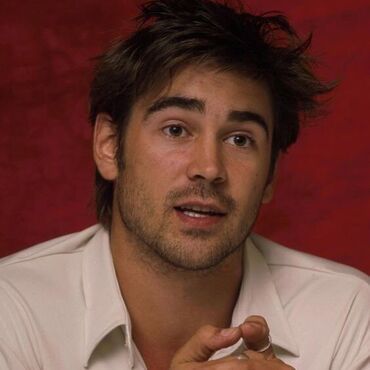

Colin is Alessandros second son. He has no children which resulted in his divorce from actress Tika Sumpter.
He began his acting career in Brazil as a teenager before following in his younger sisters footsteps and moving to America where he gained recognition for his acting talents. He has since become an Oscar Nominated actor. He is set to appear in The Batman Part II when it comes out in 2025.
Colin was born May 31, 1988 and is 35 as of 2023.
MILA PALOMINO


Mila is Alessandro's second daughter. She has two children with her husband Ashton Kutcher — Wyatt and Dimitri
She starred alongside future husband Ashton Kutcher as a teen in the television series That 70's Show, however did not pursue an extensive career in acting, and became a model alongside her sisters, walking for big brands such as Chanel, Dior, Hermes, YSL, ect. Although she is most recognised for her work as one of the iconic Victoria's Secret angels. She retired as an angel in 2018, to focus on the Palomino brand and her family.
Mila was born August 14, 1989, and is 34 as of 2023.
RAPHAEL PALOMINO


Raphael is Alessandro's third son. He has three children with his ex-wife, Megan Fox — Noah, Bodhi and Lola.
Alongside his brother and sister, Raphael took up acting roles in Brazil and then America, most notably starring as Aquaman in the titular series. Raphael has also made waves in the modelling world as one of the most sought out male models.
Raphael was born August 1st, 1991 and is 32 as of 2023.
TATIANA PALOMINO


Tatiana is Alessandro's third daughter. She has no children.
She is best known for her work and close relationship with Anna Wintour, helping launch Vogue's fashion line. She has also modelled for similar companies to her siblings such as VS, Gucci, YSL and Versace.
Tatiana was born January 31, 1993, and is 30 as of 2023.
TYLER PALOMINO
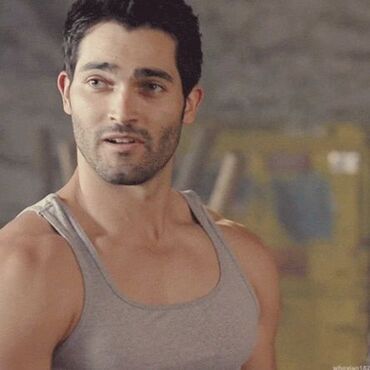

Tyler is Alessandro's forth son. He has no children
You might recognise him from your for you page, or the front page of a magazine. Tyler has set himself apart from his siblings by focusing his brand on fitness advice, although he has also dipped his toes into acting, and is an established male model.
Tyler was born October 12, 1993, and is 30 as of 2023.
ADRIANA PALOMINO


Adriana is Alessandro's forth daughter. She has no children.
Aside from her romances with Zayn Malik and Julian Edelman, Adriana is internationally known for her Victoria's Secret and other modelling campaigns. Alongside her younger sister she is among the most recognizable Palomino's.
Adriana was born October 12, 1993 and is 30 as of 2023.
JOSEPH PALOMINO
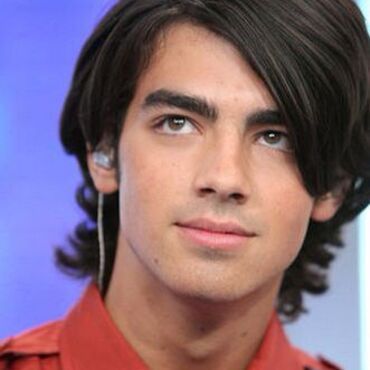

Joseph is Alessandro's fifth and youngest son. He has two children with his soon to be ex-wife, Sophie Turner — Willa and Delphine.
You probably recognise him as Joe Jonas, lead singer of the boy band The Jonas Brothers, or from DNCE, another band he sung for, most known for their single "Cake by the Ocean". Since taking a step back from music, he has begun modelling for the Palomino brand.
Joseph was born August 15, 1995 and is 28 as of 2023.
HARMONY PALOMINO


Harmony is Alessandro's fifth daughter. She has two children with her on and off again husband, Neymar Jr — Alenia and Izabella.
As the face of the Palomino brand, Harmony helped skyrocket the family to fame when she moved to America as a teen and began making a name for herself in the modelling industry. Since then she has walked in thousands of shows and a synonym for the world 'Supermodel'. After giving birth to her daughters in 2020, she has taken a break from modelling.
Harmony was born February 11, 1997 and is 26 as haof 2023.
PHOEBE PALOMINO


Phoebe is Alessandro's sixth daughter. She has no children.
Following in her mothers foot-steps, Phoebe began acting at a young age, starring in several hit series such as H20: Just Add Water, The Originals and The Vampire Diaries. She has been romantically involved with director Paul Wesley on and off for several years.
Phoebe was born July 12, 1999and is 24 as of 2023.
IRINA PALOMINO


Irina is Alessandro's seventh and youngest daughter. She has no children.
Whilst she was a relatively unknown member of the family as the youngest, when her older siblings started to take time off for their families, she began rising to fame as a supermodel. Vogue has named her among the hardest working models in the industry.
Irina was born January 6, 2000 and is 23 as of 2023.
1 note
·
View note
Text
“At the time of Henry Plantagenet’s marriage to Eleanor of Aquitaine in May 1152, he was already in a powerful position—duke of Normandy by 1150 and, after his father’s death in 1151, count of Anjou. An even greater prospect, however, was the possibility of becoming king of England. When he sailed away to England in January 1153, it was to continue the contest begun by his mother, Empress Matilda, some fifteen years earlier to wrest the English Crown from Stephen of Blois. Henry’s crossing from Normandy in mid-winter, when his opponents assumed that severe storms would keep him on the other side of the English Channel, established him as a major force in the kingdom and encouraged those favoring his cause.
…As the two sides fought to a stalemate, the English wearied of the long civil war. Many in England were willing to accept Henry Plantagenet as Stephen’s successor, if that would bring an end to the fighting. From King Stephen’s point of view, however, provision for his son and heir Eustace of Boulogne was all-important—if not succession to the Crown, then at least a guarantee of his father’s English and Norman estates. In summer 1153, the situation drastically changed when Eustace died at almost the time that Eleanor was giving birth to her first son. After his eldest son’s death Stephen lost heart for the struggle, and he concluded that it was time to make peace.
On 6 November, a compromise was reached, allowing King Stephen to wear the English crown for the remainder of his life. He had to agree that the kingdom was not to pass on to his own heirs, and he adopted Henry as his son and acknowledged him as his heir; in return, his sole surviving son, William, was to receive a generous settlement. At the time, no one could have guessed how long Stephen of Blois would live or whether the peace settlement would hold on his death. In March 1154 Henry felt secure enough in his situation in England to cross the Channel for a first look at his infant son. He celebrated Easter in Normandy, welcomed by his mother Matilda, his wife Eleanor, and little William.
Then Henry set out on a quick trip to Aquitaine, accompanied by Eleanor, and there he dealt with some local revolt, likely involving lords of the Limousin and Périgord. Eleanor accompanied him to Périgueux, and while there they each renewed ducal protection for the abbey of Notre-Dame at Saintes where Agnes, Eleanor’s aunt, was still abbess. Those witnessing the solemn grant present a snapshot of Eleanor and Henry’s entourage at the time. Accompanying them were two Norman bishops, the bishop of Agen, and Geoffrey du Loroux, longtime archbishop of Bordeaux, on hand at other important occasions in Eleanor’s life.
…By early November, news arrived from England of Stephen of Blois’s death on 25 October. His death at age sixty within a year of the treaty of Winchester was an unexpected piece of good luck for Henry, and now he, Eleanor, and their entourage had to prepare for the voyage to England for his coronation as King Henry II. England remained at peace for six weeks while the people waited patiently for their new king and queen’s arrival in the kingdom because, in the words of one chronicler, they were “in such great awe of him.” The English were too weary of war and too desirous of an end to the disorder to resist Henry’s succession.
The youth and modest ambitions of Stephen’s surviving son William meant that he would not lead his father’s loyalists in resistance to Henry; instead, he would serve the new king and queen faithfully, dying during an 1159 expedition in support of Eleanor’s claim to Toulouse. The English kingdom had passed to the dukes of Normandy with the victory of Henry Plantagenet’s great-grandfather William the Conqueror over the last of the Anglo-Saxon kings in 1066.
William and his two sons had combined Anglo-Saxon patterns of strong royal control over the shires or counties with Norman traditions of princely power inherited from the Franks. Then Henry’s grandfather, the Conqueror’s third son Henry I, had added to this combination of governmental traditions effective new administrative structures that set the Anglo-Norman realm apart from other western European countries before the thirteenth century.
England’s unity, assured by geography and history long before the Angevin kings’ accession, would enable Henry Plantagenet and his sons to rule in an authoritarian, if not absolutist manner even when abroad for long periods. The strong government of the Anglo-Norman realm contrasted with weak ducal government in Eleanor’s lands, where the dukes of Aquitaine had never succeeded in devising advanced administrative structures. All Henry’s lands on the Continent lay within the kingdom of France, as did Eleanor’s; and the French monarch claimed to be their lawful lord, regardless of his ability to exert actual authority over them.
From the time of Henry and Eleanor’s coronation as king and queen of the English, conflicts first with Louis VII and later with his son Philip II would absorb the energies of Henry and his sons. Both Louis and his successor were determined to weaken and destroy the Angevin assemblage of lands, so much of which lay in France under their sovereignty. Once Henry had won the English throne, he possessed governmental mechanisms for efficient raising of funds for paying mercenary forces to fight on all fronts against his Capetian rivals. England’s role was to be the treasury for Henry and his sons in the constant warfare with the Capetian kings, supplying barrels of cash. Henry and even more so his two sons, Richard and John, would engage in a gigantic shakedown of English and Norman landholders.
Not surprisingly, many of the English would feel threatened by their arbitrary acts, and even mighty magnates lived in fear of the king’s wrath and indignation. All three of the Angevin kings would value England chiefly for its wealth readily tapped by a strong royal government. Despite the kingdom’s importance as a source of funds, they never viewed themselves as English, although they shared English ancestry through Henry I’s queen, Edith-Matilda, descended from Anglo-Saxon royalty.
As a result, the English would feel little love for Henry II or his sons, in contrast to the fondness of Louis VII’s subjects for their God-fearing and good-hearted monarch. Eleanor, regarded by her new subjects as even more alien than her Angevin husband and suspected of immorality on account of poisonous rumors following her from France, could contribute little to her husband’s popularity in England. The English would not give Eleanor their affection until she was an aged widow.
On 7 November 1154, Eleanor and Henry arrived at the Norman port of Barfleur where they were forced to wait a month until unfavorable winds let up and allowed them to put to sea and make for their new kingdom. The turning wheel of fortune bringing down the powerful, rich, and proud was a popular motif among medieval writers. Within two and a half years Eleanor had experienced profound turns in her own fortunes, passing from the unhappily married queen of France, to a newly divorced duchess of Aquitaine in flight to her homeland, to the bride of the young prince Henry Plantagenet, and now, in a sweeping upward turn, finding herself on the voyage to her coronation as England’s queen.
She had secured her long-sought separation from Louis VII and found a husband more to her liking: a younger, bolder, and more worldly prince with apparently limitless ambitions for more possessions and power. After taking Eleanor as his wife, Henry was the greatest prince in the French kingdom, a far larger landholder than the king, and about to be crowned king of England. Soon after Eleanor’s second marriage, she would bring forth a son which had the effect of disinheriting her two daughters from her first marriage, and giving Louis an unpleasant surprise, angering him. Eleanor’s former husband was not to disappear from her life, however; for Louis’s strained relationship with Henry II of England would be a major theme of the rest of his reign. The fortunes of Henry, Eleanor, and their sons would be inextricably bound up with the Capetian ruler’s position as their lord and their adversary.
Eleanor’s expectations for her new marriage cannot be deciphered. Clearly Henry Plantagenet was a more lively companion than Louis VII, always active and on the move, riding to the hunt when not fighting against rebels. At the same time, Henry’s excellent education ensured that learned thinkers and writers would be welcomed at his court, and Eleanor would find life there more stimulating than at Paris. She would not be disappointed in her new husband’s virility, and she and Henry would produce many children in rapid succession, seven of them living to adulthood.
No doubt Eleanor expected to be Henry’s partner in the political sphere, and for the first years of her marriage at least, her position as regent in England would prove satisfying, but the promised partnership would not last. If she had expected love and devotion from her new husband, she was to be disillusioned and disappointed. Henry would prove to be as cynical and despotic in his personal life as in politics, and Eleanor’s fate at his hands would ultimately be rejection, not admiration, respect, or devotion.”
- Ralph V. Turner, “A Husband Lost, a Husband Gained, 1149–1154.” in Eleanor of Aquitaine: Queen of France, Queen of England
#eleanor of aquitaine#eleanor of aquitaine: queen of france queen of england#henry ii of england#the anarchy#history#high middle ages#medieval#ralph v. turner
41 notes
·
View notes
Photo


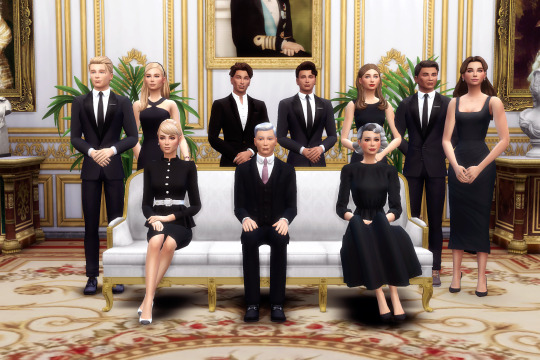
I’m so happy someone asked about dear Sophie - I’ve missed her! One day I will go back and do a mini series of her story, but for now, here are the updates on the Clifton family! and LOL “the Queen’s uncle” i am dying!!
Princess Sophie of Clifton
Sophie has come a long way since skipping her father’s second wedding and icing out her stepmother at a restaurant as a teenager. While there was much animosity between Sophie, her father Felix, and stepmother Francesca, she started to open up much more following the birth of her half-siblings, Flora and Louis. While she was not completely accepting of Francesca until Flora and Louis were older, she turned out to be a super-cool (and very loving) older sister.
Sophie graduated from the Fashion Institute of Clermont in Gardania and returned to Winchester to work for Winchesterian Vogue. She became deputy fashion editor at the magazine in just 5 years. When she was 29, Queen Victoria asked her to attend a last-minute benefit on her behalf - and that’s when she met Matt!

... and got married! Sophie got married!!! She married Prince Mattheus of Summerset, the cousin of King William II of the Winden Territories. Mattheus was serving as Ambassador to Winchester when they met at the benefit, and they got engaged a year later. They got married at the Royal Chapel in old historic Alnwick, and Sophie wore her mother’s tiara.
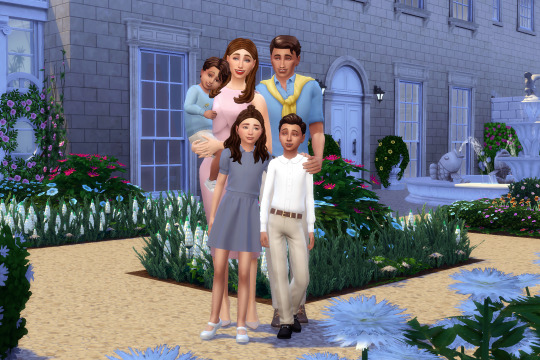
(L-R) Lord Thomas, Princess Sophie, Lady Catherine, Prince Mattheus and Christopher, Viscount Alnwick, pictured together at their home 16 years ago.
But that’s not all! They also had kids! Sophie and Matt have three children, Lady Catherine Josephine Carmichael, Christopher Edmund Carmichael, Viscount Alnwick, and Lord Thomas Spencer Carmichael. Throughout their childhood, the family lived at the Ambassador’s Residence in Alnwick and grew up with their cousins. Lady Catherine now works as a graphic designer, Christopher, Viscount Alnwick works in foreign relations for the Winden Territories, and Lord Thomas is in his final year of University.
Sophie and Matt still live in Winchester, where Matt continues his work as Ambassador. The two plan on relocating back to the Winden Territories when they are needed.
Katherine, Duchess of Clifton
When we last saw Katherine, Duchess of Clifton, it was at the events surrounding the coronation and wedding of Queen Victoria. Following her divorce from Prince Felix, Katherine remained in very good graces with the royal family, with the family often breaking protocol to include her in events (some may remember that Katherine’s sister-in-law, Queen Alexandra, chose to have Katherine walk next to her in the funeral procession of King Thomas. The late King’s brother, Felix, had to walk behind the rest of the family).
Katherine was vital in the helping Queen Victoria transition from princess to Queen, and supported Alexandra in the time after Thomas’ death. Katherine spent the entire year following the accident at the palace and with Alexandra, filling in at engagements when needed. Even after the birth of Victoria’s daughters, Katherine continued to take on royal engagements and host events on behalf of the royal family. On Victoria’s 10th anniversary as Queen, Katherine was made a Grand Dame of the Royal Albertian Order - the oldest and most prestigious award given to members of the royal family for dedication and service.

Katherine and Jeffrey at their wedding nearly 12 years ago.
Just when Winchester thought they couldn’t love Katherine more, she shocked them by announcing that she had remarried. Her new husband, Jeffrey Crowe - who was previously unknown to the public - had been the chief of Queen Alexandra’s personal security team. When he retired, the two tied the knot in a small ceremony attended only by family.
These days, Katherine is well into her 80s. She recently posed for a portrait with Felix, Sophie, and her grandchildren, as well as Felix’s other children. She spends her time chatting with her grandchildren and volunteering with organizations that promote children’s literacy. She and Jeffrey live in an apartment within Alnwick Palace, where she has tea with Alexandra twice a week.
Felix, Francesca, Flora and Louis
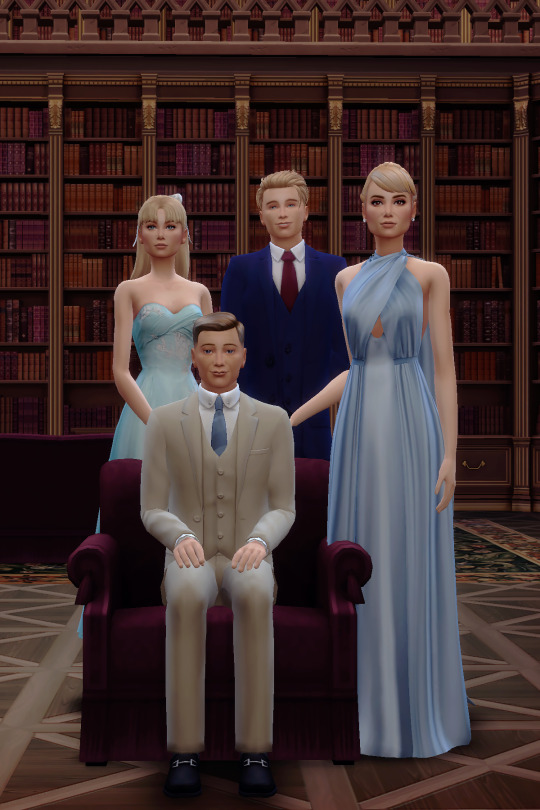
The Duke, Countess, Lady Flora and Louis, Viscount Alnwick, photographed 9 years ago.
Prince Felix, Duke of Clifton is the uncle of Queen Victoria, brother of the late King Thomas. He is a colorful character and is infamous throughout Winchester for his divorce and subsequent hasty remarriage, followed by the quick birth of twins by his second wife.
Many of you will remember that Francesca had an extremely difficult time assimilating into the Alnwick family, and her relationship with Katherine and Sophie (who could forget “pipe down, whore”?!) didn’t help. However, once Felix revealed himself to be the same not-so-great guy he always was, Francesca sought Katherine out for advice - and ended up making a friend.
When the twins were 21, Felix found himself in yet another cheating scandal - this time with his university girlfriend, who had suddenly been widowed. Though Francesca loyally stood by his side, saving him from yet another divorce scandal that would assuredly ruin his already poor public reputation, his family nearly completely cut him off. Her response secured her favor in the royal family and reminded Alexandra to quietly remove Felix from all possible guest lists in the near future.
Lady Flora Alnwick attended the University of Britechester and majored in International Relations and Chinese. She attended Queens’ College School of Law, and now works for the Winchesterian government in overseas trade regulation. She is rumored to be dating Harrison Roust, a professional tennis player.
Louis, Viscount Alnwick attended the University of Foxbury and studied business. He works for a hedge fund, and has a rather active public life on the party scene. He has been romantically linked to a number of models and actresses, and allegedly fathered a child with Winchesterian actress Lily Breckett.
Thank you for asking about the more minor characters! Feel free to ask more questions if you want to know more :)
20 notes
·
View notes
Note
okay so i know you're super interested and knowledgeable about mythology, so i thought that there's no harm in asking for help, right?
i kinda have to do a 60+ page project on the Mahabharata and the role of women in Mahabharata. do you have any fun facts or anything? all of it will be greatly appreciated
ok the reason this has taken me a significant time to respond is because i was thinking - what best way to answer this. so i have chosen the analysis of different aspects of their lives, rather than do a full character-by-character analysis cause that would end up being a full fledged book. also this is still gonna be like 6 pages. so here we go.
1. BIRTH :
Most of the women in the Mahabharata have an unusual birth, all predestined to do something. Ganga is said to be born from Vishnu’s feet and descended form the heavens. Urvashi and Menaka were the Queens of the Apsaras, born from Brahma’s thighs. Devayani and Sharmishtha were the daughters of Shukracharya and the asura king Virupaksha respectively. Shakuntala was Menaka and Vishwamitra’s daughter, who was found abandoned beneath some flying cranes. Satyavati was born out of a fish which ingested a king’s sperm and was then adopted by the chief of fishermen. Gandhari was born to bear a hundred sons, which she requested from Shiva in her previous birth (some also say her present birth). Amba was reborn as a transman after she burnt herself alive to have revenge on Bhishma. Draupadi was born out of literal fire, cursed to bring the destruction of a thousand clans, and gifted to marry five husbands, each with a quality she wanted. Subhadra was born as an incarnation of Yogamaya, while Kripi (Drona’s wife) was born from a deer.
2. LOVE AND MARRIAGE :
There is a pretty contrasting change in the way women choose their partners, and got married in the Mahabharata. This reflects their declining status in society.
Urvashi and Menaka have had several affairs and marriages. Urvashi left Pururavas when he failed to fulfill her conditions, and later asked her descendant Arjun to have sex with her. When he refused, she cursed him to become a transwoman for a year, which he could choose.
Devayani and Sharmishtha ended up getting married to the same man. Devayani’s husband Yayati, whom she married out of love, cheated on her with Sharmishtha. Devayani, however, had Yayati cursed with sterility and old age as revenge. So technically, women also had a right to a divorce i guess? not officially, but they could definitely leave their husband’s house or humiliate him.
Shakuntala marries Dushyant through the gandharva rites, with the forest as her witness. Their conflicting accounts about the end of her story - Vyasa states that mortified by her indignation at Dushyant’s hands, she leaves him with her son and returns to the forest. Kalidasa states Dushyant ends up remembering her and bringing her back as his lawfully wedded wife.
Ganga is the first wife of Shantanu, and she married him only on the condition that he would never question her. Finally, when he stops her from drowning their eighth son, she breaks her marriage and goes away with the child who grows up to be Devavrata.
Satyavati actually has two meaningful encounters - once with Parashara (son of Vashishtha) and the other with Shantanu. With Parashara, she was ferrying him across the Yamuna when he professed he wanted to have sex with her. Satyavati agreed on two conditions - if she gets pregnant, she would deliver within a day and the child wouldn’t be her responsibility and secondly, Parashara would grant her any boon she wanted. Thus, she gave birth to Krishna Dwaipayana Vyasa (the dark skinned boy born on an island) who was brought up by Parashara, and plus got blessed by an intoxicating smell. With Shantanu, even though she was young enough to be his daughter, she holds up a condition that only her children would inherit the Kuru throne, to fulfill which Devavrata takes his terrible oath and becomes Bhishma. Only then does she marry Shantanu. She literally forged her own destiny and had control over her decisions, something which she herself denies later to other women.
Satyavati orders Bhishma to abduct the three princesses of Kashi - Amba, Ambika and Ambalika, as brides for her drunkard son Vichitravirya. Thus, she snatches away the same freedom of marriage she had enjoyed. Amba resists her abduction, however ends up being rejected from her boyfriend King Shalva, for she was now “another man’s property”. She demands Bhishma marry her to salvage her honor, which he denies due to his oath of celibacy. Satyavati could’ve made him break the vow, which she doesn’t. Amba goes to all the kings in the world, seeking one who would salvage her honor. None do, for all are afraid of Bhishma, so she curses all that their lineages would go extinct in a war fought to salvage another woman’s honour in another time. Finally she approaches Parashuram, Bhishma’s teacher. Enraged, Parashuram fights Bhishma but realizes that their fight could end the world. That is one Amba burns herself alive, and curses Bhishma that she would be reborn, and reclaim her revenge. Later, Satyavati forces Ambika and Ambalika to undergo niyog with Vyas after Virya’s death (niyog was practiced when a man died without an heir, so another male member of the family was called to produce an heir with the widow). Thus she also snatches the same sexual freedom which she enjoyed from her daughter in laws. Some say this was also a part of Satyavati’s plan to ensure that only her lineage sits on the throne, because biologically Vyasa is Satyavati’s son, and not Shantanu’s, thus making the children he fathered Satyavati’s blood, and not Kuru blood as they legally claim.
Kunti was forced to have a child with Surya, just because of a childish boon she wanted to try out. Later, she choses Pandu, Ambalika’s son, from a select swayamvara of princes. She couldn’t have chosen another man as others before her had.
Satyavati yet again snatches the same freedom she took for herself. Bhishma is ordered to march to Gandhara and get it’s princess, Gandhari, as a bride for the blind prince Dhritarashtra. When her father Subala resists, Satyavati has him destroy the entire kingdom and kill all of Gandhari’s family, sparing her and her youngest brother Shakuni. Thus Gandhari has no say in her own marriage, for the first time in the Kuru dynasty. Even her act of remaining blindfolded in solidarity with her husband is often pedestalized, the pain behind it overlooked. This is also what gives birth to Shakuni’s burning thirst for revenge and the destruction of the entire Kuru dynasty, just like his family was killed in front of his eyes. One has to understsand that the Mahabharata was simply the sum of past sins and curses and boons and births. Pinning it on Draupadi, who was the last character in this play of power, reduces this epic’s magnificence.
Duryodhana’s marriage with Bhanumati is like the typical fairy tale we hear - she specifically tells him to abduct her and marry her so she doesn’t end up marrying some random dick she doesn’t even know. Again, the woman is in control of her marriage, however the fact that a marriage is being forced on her comes to the fore now.
Hidimbaa, Bhima’s first wife, was a rakshas princess and she marries Bhima by having him kill her brother who wanted to eat him instead. Hidimbaa never goes with Bhima, and instead raises her son Ghatotkacha single handedly and looks after her queendom. This shows a major shift in the status of a woman - the so called “civilized” society keeps reducing the freedom and space given to them, while tribal customs continue to uphold individuality.
Draupadi’s marriage symbolises the status of women perfectly at the time. She’s not a woman with a say in her marriage - instead she’s reduced to a prize, a political alliance to be won in an archery competition. Had Arjun not won, Draupadi would’ve had to keep her head down and just marry the other person because she has no choice.
Subhadra’s marriage is in stark contrast. Arjun is her second cousin (barf) and she abducts him from her own wedding (which was happening to Duryodhana) and marries Arjun with Krishna’s blessings. Subhadra takes the same freedom that Draupadi was never offered. Also, Draupadi and Subhadra would become Arjuna’s only wives - none of his other “companions” would get the same title or status.
Dushala is married to Jayadrath, king of Sindh. The marriage was an unhappy one.
Balarama’s daughter Sulakshana runs away with Ghatotkacha’s help and marries her first cousin Abhimanyu, while Uttara is offered as a political alliance. Again there’s a stark contrast between the two, and it holds a mirror to society - how once the same freedom offered to women had now become a thing of legends.
3. POLITICS AND AMBITIONS
Devayani had wanted to snub Sharmishtha her whole life because of the one major fight they had which she lost. Being the daughter of Shukracharya, Devayani had more resources at her disposal, and she makes good use of them by transforming Sharmishtha, a princess, into her slave. Later, she also makes sure Yayati is punished for his adultery.
Shakuntala played kingmaker - according to the Mahabharata she went back to the forest only after securing her son’s right to the throne. According to Kalidasa, she has no ambitions whatsoever.
Satyavati’s political ambitions have already been discussed above - her rise to power, her way of ensuring that only her blood claims the throne, and the fact that she was willing to do anything for what she wanted. Another factor into this is caste - Satyavati is often ridiculed as Daseyi (daughter of a slave) and is discriminated against because of her caste as a fisherwoman.
Amba’s ambitions have also been discussed above - her burning desire for revenge. When she is reborn as Shikhandi, she deliberately has her gender changed before her marriage so that she transforms into a man.
The tussle between Kunti and Gandhari for power is an actual stuff of legends. While Kunti is mostly projected as a hapless widow raising five boys, most people forget that she’s a powerful princess, and was originally the Empress of Hastinapur, later turned widow. She knows the deadly game of politics and it's nuances, and the same goes for Gandhari. According to the epics, the game played between these two queens was subtle, and not open. For example, Gandhari had took over Kunti’s quarters and had her sleep close to the servant’s quarters. Kunti too secures her own future by convincing Bhishma to back her and her son’s claim to the throne. One famous tale recounts that during a particular festival, Gandhari calls in a hundred elephants covered in gold for the worship. Since Kunti has no resources of her own and instead has to use toy elephants made of clay, she asks Arjuna to do something, who promptly goes to the heavens and brings back Airavata, the king of all elephants and Indra’s vahana, for Kunti. This rivalry comes to the open when the kingdom is divided and the wastelands and forests, Khandavaprastha, is handed to the Pandavas. Kunti accuses Gandhari of deliberately giving the useless part to her sons, while Gandhari accuses her of nurturing the wish for the throne in her sons’ hearts. This rivalry, however, comes to an end with the war, and both reconcile.
Kunti is also shown to be heartless/overprotective when it comes to her kids, which is understandable given the circumstances in which they were brought up. However, that doesn’t justify the fact that she made Bhima leave Hidimbaa in the forest. It also doesn’t justify the fact that originally, when she got to know that she and her sons were to be burnt alive in the Varnavata Summer Palace, she burnt alive another mother and all her children who had come there from the forest as guests, along with the caretaker Purochana who was in on the plan, as a cover so they could escape. It also doesn’t justify her making Draupadi marry all five brothers so there could never be “a fight over a woman”. Her masterstroke, however, comes during the War. What I believe is, she should have told Karna the entire truth and accepted him the moment she saw him. However, she waited, and then finally when the War arrives, she tells him the truth and emotionally manipulates him. Softening Karna’s heart, she protects four of her sons, and she had enough faith in Krishna to protect the fifth. It could also be genuine affection, but I refuse to believe that.
Draupadi has to face a much tougher life though. Kunti had already tied her to all five brothers as their “mutual” wife. One can only imagine the pain and endurance she goes through, battling her in-laws and her own family. She later has the Pandavas promise that no other wife of their could get the title of wife or the status, and couldn’t enter the Kuru household or Indraprastha. Even Subhadra was never allowed inside Hastinapur and Indraprastha, and instead spent her entire life in Dwarka. Her “laugh” at Duryondhana’s stumble in Indraprastha could be genuine fun, and also her own way of getting back at him for all those years of injustice. In the forest during exile, she has to keep all her wits about her, as she encounters wrathful sages, vengeful spirits, and kings with ill intents. As a hairdresser, she had virtually no power and so could do nothing herself when the queen’s brother, Kichak, tries to rape her. However, she invites Bhima over (who’s living as a cook) and he easily kills Kichak. What’s really infuriating is the way people pin the entire carnage that follows on her head - essentially victim shaming. People say “so what if she was disrobed publicly? does that mean she would destroy that entire clan, who stood mum and watched?” Yes. Yes it does. And you can’t give the excuse “she is fire’s daughter” and all. NO. Then, she wasn’t the weapon summoned to destroy a thousand clans, daughter of fire, Empress of Indraprastha or Princess of Panchala. At that moment, she was a woman being disrobed publicly. A woman lost in a wager like cattle. Nobody rose to defend her, except Vikarna, a Kaurava and Krishna, the man she regards as her own brother. This is what makes a bold statement about women - she’s no longer a person, but a commodity to be owned by someone. It reflects the rot and decay of our society, which increases day by day. What I believe is, Draupadi’s demand for retribution is perfectly justified - her wish to bathe in the blood of the one who disrobed her, dragged her by her hair all the way to the Imperial Coury, perfectly justified. Her wish to see the corpse of all those who stood silent as she was being disrobed, or those who mocked, pile up in the great blood soaked field of Kurukshetra. Her heart however melts the instant she sees the “great army of widows and orphans” who arrive at Kurukshetra.
4. CHILDREN
A recurring, patriarchal theme in all Hindu epics is the fact that a woman’s happiness was linked to her children, most of all sons.
All of Devayani’s five sons were banished and cursed when they refused to take up their father’s old age and sterility while in their youth. The same fate awaited Sharmishtha’s sons. Only the youngest, Puru, agrees and is then pronounced king after a thousand years, when Yayati returns him back his youth. Moreover, Devayani has to give her daughter Madhavi to a priest on Yayati’s order, who is later raped by four kings as a teenager and gives birth to four great sons. These sons are later asked to give up a quarter each of their merit earned on earth to Yayati, who was denied passage to heaven for all of his sins. This shows the fact that Indian/South Asian society continues to be dominated by those before us – our parents and their parents – and we have to comply. This is in contrast with Western philosophy, which makes way for the younger generation. In South Asian society, both have to co-exist, with the older often domineering.
Ganga’s sons were actually the eight Vasus who were cursed to live terrible lives as humans. By drowning seven of them the moment they are born, Ganga ensures that they spend minimum time in the mortal realm and return back to the heavens. The eldest, Prabhas, was cursed to live the most terrible life of them all, which ends up happening - Devavrata, later Bhishma, couldn’t be killed after birth. He lives a terrible life - a prince reduced to a slave of the throne, innocent blood on his hands, no family of his own, and he couldn’t even decide whom he wanted to fight for. This shows the theme of overlapping stories, something which keeps recurring in Hinduism in general.
Satyavati’s elder son Chitrangada was killed in a war with the gandharva king, Chitrangada. Her other son, Vichitravirya, gave himself up to wine and intoxication and died young. Her son with Parashara, though, outlives till the time of Janmajeya, Arjuna’s great grandson. Krishna Dwaipayana Vyasa ends up compiling all the Vedas and writing the famous Mahabharata. He also keeps coming here and there in the epic, for example Satyavati inviting him to perfrom niyog forcefully with her daughter in laws and produce heirs.
Ambika had her eyes shut the entire time during her rape/niyog, and so the child born - Dhritarashtra, was blind. Ambalika was shaking and fearful the whole time, so her son Pandu was born weak. Vyasa had consentful sex with a palace maid, and the son born to her, Vidura, would’ve been the perfect heir. However, Dhritarashtra was denied kingship by virtued of his blindness, while Vidura was denied the throne by virtue of his mother’s caste. Pandu later retires following a curse, and so Dhritarashtra takes up the kingship. He is shown to be a spiteful character initially, frustrated that despite being the elder one and perfect, he was denied the throne because he was blind. He passes on the same frustration and poison to his children.
Gandhari’s pregnancy was special. She was pregnant for two full years, in which time Dhritarashtra had another son, Yuyutsu, through a palace maid. Gandhari’s gestation period was equal to that of an elephant, and had she had just a little more patience, she would’ve given birth to a literal god. however, frustrated with the fact that her husband had cheated on her, she kept beating her womb each night with a red-hot iron rod, until she gave birth to an undeveloped foetus. Vyasa intervenes by cutting it up into 101 pieces and “hatching” them in vats of ghee in an incubation chamber (historians and scientists say this could be the earliest documented evidence of IVF or incubation chambers), resulting in the 100 Kauravas and their only sister, Dushala. Some say that evil omens were there during their birth. This also demonstrates that a woman’s social holding was also related to the no. of children she had, especially sons.
Kunti had received a boon from Durvasa that she could have a child with any god she wanted. Her experimentation with the boon leads to her unwanted and forced pregnancy of Karna. Historians suspect this could be a teen pregnancy, logically, and ill equipped emotionally and physically handle a baby at that stage in her life, she cast him away in the river (still unjustified i think). This baby grew up to be Karna, filled with resentment over his fate. Later, when Pandu is cursed with sterility and the fact that if he dares touch a woman out of love he would die, Kunti uses this boon again to have three sons from three gods – Yama, the god of death and law; Vayu, the god of wind and Indra, the king of the gods and god of rain and thunder. Historians speculate this could be a cover for niyog (mentioned above). Later, Kunti begrudgingly bestows this boon upon Pandu’s favorite wife, Madri, who begets twins from the twin gods the Ashwin Kumaras.
Draupadi has five sons with her husbands - Prativindhya (from Yudhishthira), Sutasoma (from Bhima), Shrutakarman (from Arjun), Satanaka (from Nakul) and Shrutasena (from Sahadev). None of them have children of their of their own and die a gruesome death, killed by Ashwatthama in his murderous frenzy.
Subhadra’s son Abhimanyu features more prominently in the epic. Legends say he knew how to enter into a chakravyuh from the moment he was born, but not how to exit. During the war, he enters a chakravyuh formed by the Kauravas, where he is unfairly killed - surrounded by ten men, and defenseless. He dies trying to defend himself by using a chariot wheel.
The other wives of the Pandavas suffer for a war that they weren’t even a part of. Hidimba’s son Ghatotkacha helps the Pandavas and turns the tide towards them. He grows into a strong Asura and uses his magic, and is eventually killed by Karna using Shakti, the weapon he received from Indra. Uloopi’s (Arjuna’s Naga wife, daughter of the Naga king Vasuki) son Iravan is killed before the war itself as a sacrifice to appease Chamundi, and his head is mounted on a hill so he can survey the war. The same fate awaited Ghatotkacha’s son Barbareek. Since he was the strongest warrior any side and could finish the war in a second, Krishna demanded his head as a sacrifice so that he couldn’t participate in the war, in return promising him eternal worship (Barbareek is worshipped as Khatushyam in Rajasthan). Chitrangada (Arjuna’s androgynous warrior wife, Queen of Manipur) strategically protects herself and her kingdom from harm. However, owing to a curse Ganga gives to Arjuna, Chitrangada’s son Babruvahan ends up killing his own father Arjuna and then later commits suicide. They’re both revived by Uloopi using the Nagamani.
Duryodhana’s wife, Bhanumati, also suffers. Her son Lakshmana, who was originally a poet, was killef by Abhimanyu when he was defenseless, while her daughter Lakshmanaa was raped by Krishna’s son Samba and then later married to him to save face.
Karna’s first wife Vishakha loses all her sons and commits suicide. His other wife Uruvi’s only son, Vrishaketu, is spared because he was only 9 at the time of the War and thus, lived.
Dushala’s sons die defending Sindh from the Pandavas, and only Dushala and her grandson are spared. Another account says she forced her sons to enter the war, and they all died there.
Uttara’s son Pareekshit was killed within the womb by Ashwatthama, when he fired the most powerful missile in the world, the Brahmastra, at her womb. Krishna revives the child through his powers, and then curses Ashwatthama to remain immortal, yet suffer through a thousand diseases every second for the sin of trying to murder an unborn.
Vyasa’s son Sukadev, blessed with “the memory of a parrot” memorises the entire Mahabharata.
Pareekshit is later killed by the Naga king Takshak, as revenge for the murder of his family through Arjuna’s (Pareekshit’s grandfather) hands when he burnt the Khandava forest. In revenge, his son Janmajeya conducts a powerful Sarpa Satra where all the nagas of the world are killed. The genocide is stopped by Asita, a Naga sage, who along with Sukadeva and Jaimini recited the entire Mahabharata to him and made him revive the snakes killed.
5. DEATH
Satyavati dies along with Ambika and Ambalika in the forest after taking retirement. She drowns in the very same Yamuna which turned her life around.
Amba, reborn as Shikhandi, dies in the war.
Gandhari dies heartbroken, while Kunti dies in a fire.
Draupadi dies while trying to reach heaven via the Himalayas. None of her husbands so much as even look at her as she falls to her death.
Subhadra dies with the tsunami sent by Varuna (god of the seas) which destroyed Dwarka.
The deaths of all of these women are ironic, but also demonstrate the rule of Karma .
Not much is known of the death of the other women in this magnificent epic.
I hope this serves as a good and honest reminder about the women of the Mahabharata, and helps with your project.
86 notes
·
View notes
Photo
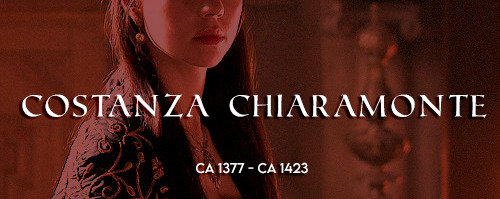
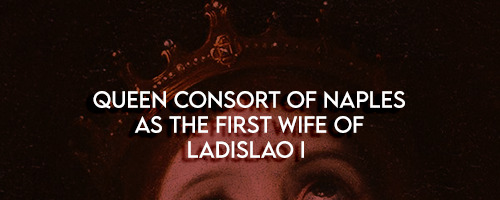
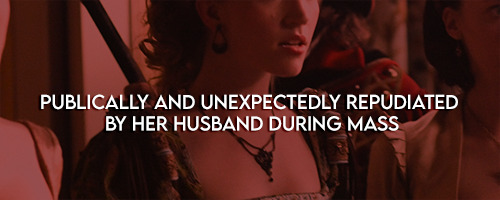
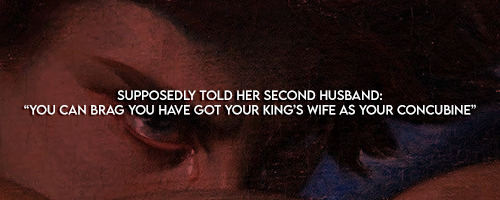
“But it happened that some merchants from Gaeta, who had gone to Sicily to buy grain, spoke in front of the Queen about the riches of Manfredi Chiaramonte, and about the beauty of a daughter of his. Whence the Queen's wandering mind stopped to think to ask for the girl's hand on behalf of her son, the King Ladislao, who was already fourteen [sic] years old.”
in Angelo Di Costanzo, Historia del Regno di Napoli dell'Ill. Signor Angelo di Costanzo, Gentil’huomo e Cavaliere Napolitano, p. 237 [my translation]
Costanza was born around 1377 (probably in Palermo) from the noble and ancient family of Chiaramonte. She was the daughter of Manfredi III Chiramonte, IX Earl of Modica and Duke of Malta, and his wife, Eufemia Ventimiglia. Costanza's father was a powerful man, who, during his lifetime, would hold high profile roles, such as Admiral, Grand Seneschal, Master Justiciar and Regent of the Kingdom for young Queen Maria of Sicily. From her mother side, she was the granddaughter of another former Regent, Francesco II Ventimiglia, Earl of Geraci.
In 1389 Margherita of Durazzo, Regent of the Kingdom of Naples, asked fellow Regent Manfredi Chiaramonte for Costanza's hand on behalf of her son, the twelve years old Ladislao of Anjou-Durazzo. Three years prior, after his father Carlo III had been murdered, Ladislao failed to be recognized by Urban VI as legitimate King of Naples. The Pope had assigned the throne to Louis II of Anjou, whose father had previously (in 1380) been adopted as son and heir by the childless Queen Giovanna I of Anjou-Naples in an attempt to block the rival Anjou-Durazzo's claims to the Neapolitan throne. In 1387 Louis II's troops invaded the Kingdom of Naples, so young Ladislao, alongside his mother, the rest of the family and court, was forced to seek refuge in Gaeta.
If the Chiaramontes' social status benefited from the newly acquired (although wobbly) royal connections, the Anjou-Durazzo made good use of the bride's rich dowry to replenish their worn-out coffers. Their economic situation was so dire, the University of Gaeta had to act as a guarantor and advance the sum of 15 thousand gold florins on behalf of the royal family, which would have been handed to the bride's family in case of non-consummation of the marriage and consequent dissolution of the union. In summer 1389 Costanza then arrived in Gaeta by sea escorted by galleys. These same vessels managed successfully to break the chains which locked Naples' harbour and bring relief to the Durazzo forces besieged in Castelnuovo.
In October of the same year, one of Ladislao' enemies, Urban VI died. Unlike his predecessor, Boniface IX favoured the Durazzos since the Anjou supported the Antipope Clement VII. As also the Chiaramonte backed the newly elected Pontiff, the union between Ladislao and Costanza received Clement's blessing. The marriage between the now recognized King of Naples and the Sicilian noblewoman (they were both 13 years old) finally took place on August 15th 1390 (the marriage settlement probably dated back to September of the previous year). The religious ceremony was immediately followed by a joint crowning ceremony.
This union would prove to be short-lived as Chiaramontes' fortunes were about to change. Costanza's father, Manfredi died in 1391 and was succeeded by his kinsman, Andrea Chiaramonte, X Earl of Modica. That same year, Queen Maria married her second cousin Martino the Younger of Aragon. In the eyes of the majority of the Sicilian nobles, Martino was a stranger (despite being, like his wife, a descendant of Pietro II of Sicily) and his marriage to the Queen could (and would) have led to Sicily fall under a more direct control of the House of Aragon, with the consequent loss of influence of the Sicilian nobility. In the end, Andrea Chiaramonte was abandoned by his allies and found himself alone in trying to contrast the new King consort and his father, the powerful Infante Martino, Duke of Montblanc (and later King of Aragon and Sicily). The Earl of Modica was arrested, charged with treason and beheaded in Palermo, June 1st 1392.
With the decline of her family, the young Queen of Naples' fortunes too deteriorated. The King had now no reason to be still married with the representative of a disgraced household. In May of the same year, Ladislao had travelled to Rome to obtain from the Pope the annulment of the marriage. The official motivation was the minority of the bride and groom. To make things worse, the Queen's mother, Eufemia Ventimiglia, was accused of debauchery and to have become Infante Martino's mistress.
In July 1392, the Pope conceded Ladislao the desired annulment, and the bill of divorce was read publically by the Bishop of Gaeta while the King and Queen were attending mass. The Bishop pulled the wedding ring from Costanza's hand and handed it back to Ladislao.
Three years later, the King married his former wife to one of his vassals, Andrea di Capua, IV Earl of Altavilla (1374-1399). Costanza's modest dowry amounted to 3 thousand ducats. According to tradition, she publically and disdainfully addressed her new husband telling him he could now brag he could call as his concubine his King's wife. Costanza bore Andrea di Capua at least one son, Luigi (1400-1443), who will inherit his father's titles and possessions. Costanza died in 1423 and is currently buried in the Church of the Madonna delle Grazie, in Riccia (n the region of Molise), together with her husband, son and the rest of the di Capua's members.
As for Ladislao, in 1403 he would marry Maria of Lusignan, Princess of Cyprus and Jerusalem, but the new Queen would die the following year. In 1406 he would marry a third and last time, with Maria of Enghien, widow of Raimondo Orsini del Balzo, Prince of Taranto. The King of Naples would die 8 years later without legitimate children and the crown would be inherited by his sister Giovanna II.
Sources
- Salvatore Fodale, COSTANZA Chiaramonte, regina di Napoli in Dizionario Biografico degli Italiani
- Angelo Di Costanzo, Historia del Regno di Napoli dell'Ill. Signor Angelo di Costanzo, Gentil’huomo e Cavaliere Napolitano
- Famiglia di Capua
#history#women#history of women#women in history#historical women#costanza chiaramonte#ladislao i#manfredi iii chiaramonte#chiaramonte#aragonese-spanish sicily#people of sicily#women of sicily#myedit#historyedit
65 notes
·
View notes
Text
All Creatures Great and Small
Facts, trivia and corrections of common misconceptions
As you probably know, I love James Herriot’s books and the BBC series All Creatures Great and Small. But reading posts online, from random comments on social media to actual newspaper articles, made me realise that not everything said about the books and especially the series is exactly correct, or at least not complete. And then of course, there’s also the usual questions askwed and answered (not always correctly) over and over again. So this post will address some of these things, simply because I care about it all.
James and Helen, Chris and Carol
The most common untruth spread about the series is that Christopher Timothy, who played James Herriot in the BBC series, left his first wife for an affair with Carol Drinkwater, who played Helen in the first three seasons, and that she was fired from the show because of it.
It was actually quite different. First of all: Carol was never fired! The show was cancelled after three seasons, as the books had finished at that time, and Carol returned for two following feature-lenght specials. It was only when, due to the books’ and the show’s popularity, Alf Wight (the real Herriot) decided to write new stories that the show was revived, and Carol, unhappy with a role that she liked but thought to limited, chose not to return.
As for the affair, that was different as well. There was a lot of bad press, especially for Carol, but Chris Timothy never left his wife for her. In fact, they didn’t even like each other at first: Carol had a mild crush on Robert Hardy, which she never pursued because he was married at the time, and didn’t get along with Christopher Timothy at all. Then, near the end of the first run of the show, they had to wait together in a car for a scene to begin filming, and they started to talk. His married had just ended at that time and he was very distraught, though he was not yet formally divorced, and she had just gone through a painful break up herself. They bonded over that, and got together. Chris was still married at that time, but seperated, and she was never the reason for his divorce. The press painted a different picture, one that is still spread nearly fourty years later, but it’s not true at all.
The Yorkshire farmers
Were all actors. People like to claim otherwise, but it is not true. Many people like to say that the farmers look too authentic to be played by actors, but that isn’t true. The actors were just very good at playing farmers, and not so famous as to be instantly recognised. Many were regional actors, from little theatres and comedy troupes, others were rather familiar, but not too well-known faces from television shows. They were not real farmers, they just did their work and did it well.
What about the vets?
The big question of the arms inside the cows. Did the actors really do the dirty work? Long story short: Yes.
But they didn’t do things on their own! No, no. The BBC hired to veterinarians, one for pets and studio scenes, one for farm animals and outdoor filming. The real vets trained the actors, helped them, and sometimes traded places with them for close ups on their hands. They even found sick animals to be treated for the filming, either by the actors under their guidance, or by themselves, depending on how difficult or serious the respective procedure and ailment were.
Some things, such as stitching wounds and helping with the calfing and lambing (the latter being rather normal for “country bumpkin” Robert Hardy, who was used to a lot of the work he had to do on screen) were done by the actors, including the (in)famous arms in the cows’ backsides. But never anything that could harm the animal! In fact, many animals were saved by the show, as the BBC paid for all treatments on set, which caused the real evts to take the pets of poor clients to the tv sets, even if they were never used for filming, and made the BBC pay the bills.
Fun fact, though: There’s a scene in which Peter Davison literally screams with his arm in a cow’s backside. That’s because his arm was tightly squeezed inside and he was in real pain. But don't worry, he got out alright, and the cow was okay too.
Science and progress
The illnesses and treatments were very accurate. People also like to claim otherwise, but that isn’t true. Many things, of course, are outdated now (and, ironically, many things that were seen outdated back then have become rather common again!) but the medical treatments are absolutely accurate for their time, and so is the portrayal of the scientific progress from the 30s to the 50s.
There are, of course, very individual cases, and unconventional treatments, but that happens if you base things on real life and memory, rather than textbooks. Those special cases are either things that really happened and worked a bit different than usual, or things that are very similar to real happenings (like real cases “blended” to make one fictional one, etc.) and not, in fact, pure invention. The books are, after all, written by a real vet, based on his own memory, and the show adopted all these cases very accurately.
Fact and fiction
Alf Wight still chose to make things up for his stories. Many details are changed from real life, such as changing Helen’s background very much from Joan’s and putting aquaintances from different decades into one setting. He also kept things from his perspective—things he didn’t know about his friends, were things he didn’t know, at least at that time, and that is how things stay.
Now the writers and actors of the show dug a bit deeper, and talked to Joan (Helen), the Sinclairs (the Farnons) and other people who play necessary parts. They added details that could give more depths to the stories, but also respected specific wishes for privacy, especially coming from Donald Sinclair.
Which brings me to:
What happened to Caroline?
Siegfried marries Caroline in the first Christmas special, but she is only mentioned (and sometimes briefly seen) in later episodes. Many people wonder if that means that their marriage ended or wasn’t good, but it’s very much different.
Caroline is based on Donald Sinclair’s real wife Audrey, whom he loved incredibly much. They had two children, which are also sometimes mentioned but never shown in the series. That is because Donald valued his privacy very much and wanted to protect his family from public attention.
Alf Wight first met Donald Sinclair as a young “bachelor” (actually widower, but he also kept that to himself) with many flings with pretty young women, and that’s how Siegfried was portrayed at first. But it couldn’t be kept like that always—it would have been silly for a middle-aged Robert Hardy to always invent visits to his mother to cover up various dates, and a character based on Donald, whose world revolved around his wife, could only be a bachelor in the very first few years of his acquaintance with Herriot. Donald Sinclair was unhappy with being shown dating various women, which he did before he married Audrey, even after three seasons, and he also didn’t want Audrey to be used for the show.
So it was decided that Siegfried were to have a wife, and children, and be very happily married in the later (initially unplanned) seasons, and that there were not to appear in television storylines. They lived off-screen, in their own big mansion, while Siegfried was working in Skeldale House. A woman-who-could-be-Caroline was sometimes seen when a partner was needed, and that’s it.
Donald’s first wife was never mentioned, also out of respect to his privacy, but Siegfried was portrayed to have a severe fear of loss and separation, and to cling very strongly to all his loved ones, as well as to have strong depressive and maniac episodes, which is said to be accurate to Donald Sinclair’s personality. This portrayal was, however, done very subtly.
Character and actor
Alf Wight said to Christopher Timothy that he was the Herriot that he wrote about. They got along very well, and Chris Timothy was considered the perfect actor for the part by him.
Donald Sinclair was, true to Siegfried’s character, always unhappy with the way he was portrayed, and the better and more accurate the portrayal got, the more dissatisfied got he. Robert Hardy was, according to people who knew Donald, absolutely perfect at playing him, and Donald himself was of a very different opinion. But he liked Robert very much, they became very close friends, and Robert actually worked as assistant in his surgery and sometimes their families lived together for filming and holiday periods. Both Alf Wight and Robert Hardy insisted that they “toned him down” while writing/playing him, even people who didn’t know him thought him “too much”.
Brian Sinclair was very happy about the way he was portrayed, and about the books and the show in general, and very relaxed about it all. He also really liked Peter Davison.
Joan was very critical of Carol Drinkwater at first, and thought she made her look like a tart, but warmed up to her later and talked well of her performance in retrospect.
The second girl to play Rosie Herriot, Alison Lewis, was friends with Rosie’s real-life daughter Emma. Rosie didn’t expect her to play the part, and was very surprised to see herself played by her daughter’s friend on tv!
Marjorie Warner, the inspiration for Mrs Pumphrey, was one of the first people to recognise herself on the page while reading the books, and was very happy about the way she was portrayed. It is, as far as I am informed, unknown whether she liked the tv series, but she was still alive when the first seasons were made.
As for the actors
It was Robert Hardy who made much of it all possible. His fame allowed the BBC to cast the relatively unknown Christopher Timothy in the lead role, which they first wanted to cast a famous actor for, and it was him who insisted on making Tristan a larger character, because he greatly enjoyed Peter Davison and set his mind on making the young man a star. He also threatened to leave the show if it were filmed anywhere but Yorkshire, and he also forced the BBC to treat the actors and animals better, and insisted on the necessary safety around the animals. After Chris Timothy’s accident, he insisted that he shouldn’t be re-cast and took up some of the work he couldn’t to, and made Peter and Carol do the same. That aside, he edited, revised and changed some of the scripts, and wrote some of his own scenes. When some younger writers messed up Siegfried in the later episodes, he largely took over himself.
Robert Hardy and Peter Davison actually grew extremely fond of each other. Robert insisted that Peter looked exactly like one of his brothers at that age, and he loved the way Peter tried to impersonate his mannerisms to make them feel more like a family.
Christie the whippet was Robert Hardy’s real dog, the other dogs belonged to producers and other crew members. Some sources claim that all dogs were his, but that isn’t true. SIegfried’s horses were usually actor-horses but he sometimes rode his own on screen.
Mary Hignett was the balancing force between the actors. Everyone loved and admired her, and whenever there was a bad mood between the others, she quickly got them all calm again, just as Mrs Hall used to do. Her sudden death shortly after the (original) end of the show was a great shock to all of them, and Mrs Hall died with her. She was greatly loved by everyone.
Margaretta Scott was also very respected and beloved. She always insisted on carrying the various dogs who played Tricki-Woo on set, and she would only have her make up done by the chief make up artist.
Robert Hardy’s was usually called Tim, as his real first name was Timothy, which he was also occassionally called, and which caused some confusion on the set.
Christopher Timothy had a car crash at the end of the filming of the first season, in which he broke his legs, which is the reason he walked on a stick and had a very stiff walk for some time.
Robert Hardy’s daughter Emma has a very serious riding accident before the filming of the first season, in which she was badly injured, and which made her father rather sensitive to the horse-related safety on set, and insist that everything must be done right and no risks taken. She fully recovered, and actually played the small part of Rosemary Brocklehurst in the series, thirteen years later.
Lynda Bellingham was pregnant during the filming of season five, which is the reason for the slipped disc storyline. Andrea Gibb, who played Deirdre, was also pregnant at that time, but her part was smaller and was simply away for some episodes, and wore some covering clothes.
32 notes
·
View notes
Text
How to make a marriage work
Summary: If you had told when she first met Hank Voight that one day she’d be going to him for relationship advice, Kim would’ve strongly recommended you get your head checked out.
Set sometime in season three; Kim needs advice on how to be married, and goes to one of the only people in her life who's had a successful marriage.
Word Count: 2.5k
Read on AO3
Notes: This is a gift for Cíara (@fighterkimburgess ). They put me in my parental feels and i just have this need to Reward and gift them things. I've had this idea for a while and never planned on writing it bc I never could make it work, and it's self indulgent and I couldn't work out how it'd fit with season three Voight (bc he's not on the level, say, season seven Voight is) but my mind is inspired today and it just worked.
But yes. This is self indulgent and bc I was in my dad! Voight feels and Cíara just has a remarkable and incredible way of saying things that one) inspires me and two) makes me understand the nuances of this man.
Plus y'know. We've got burzek being cute in this and that promo dictated I needed to write cute burzek.
Enjoy!!!
Come on, Kimberly. Kim tells herself, her inner voice taking on a firm, no nonsense tone that reminds her strongly of Platt’s. You’ve faced down guns, you can do this.
Her mind rebels against that sentiment, and she wonders if she was actually given the choice—to do this, or to face down yet another gun—if she’d choose the gun, depending how much she’s bricking it right now.
It’s just Voight, she thinks, taking a few more deep breaths. Of course, it’s not just Voight. Physically, yes, it’s just the Sargent. But it’s not just Voight, it’s her boss, it’s the man who holds everyone to such high professional standards, it’s Voight after hours, it’s an unscheduled meeting.
And, the thing that’s playing on her mind so much, the thing that has made her keep hesitating, it’s the man who looked over her for Intelligence because of his perceived understanding of Adam and her.
There’s a lot of reasons that makes Kim justified about trying to go up to Voight’s office and instead having false starts, turning back around to flee to the locker room before he could see her. Even if she’s fearless in the face of danger, she still has every right to be unsure about this.
After all, he is her boss. And he might care about those he’s in charge of, especially his unit and Kim likes to think it’s also to those close to them. Definitely Platt, but also herself and Roman. But he dictates when things are personal, and that’s so far and few between. He’s a man who plays everything close to the chest and there’s so many reasons that tells Kim that this isn’t something she should consider, that he’s probably just going to give her a look and dismiss her.
And Kim definitely will be risking whatever chance she has left of ever being offered a spot in intelligence.
All this is valid, and if anyone else knew of her plans, they’d agree that she’d be justified to just scrap this whole idea. But every day of this job is a lesson, and Kim has learnt a lot since starting. And she’s learnt a lot since Voight came in as their new Sargent—especially when Adam was hired.
Kim was passed over because Voight thought she was sleeping with Adam. And that hurt, hurt more than Kim thinks she’d ever be able to express in words.
But through that, Kim learnt things about herself. That she’s determined, and this is her dream, and that she can still succeed and achieve even when she’s passed over. And that she should just stick to what she’s doing, to prove herself, to show that everything she does, especially in her personal life, doesn’t affect what kind of cop she is.
A lesson that came in handy when she was shot, and he actually offered her the spot. That she knew she wanted to earn it in a different way, not just because she was shot.
Kim also learned something else. That this job may her everything, and that intelligence may be her dream, but there are some things that’s worth being flexible over.
That Adam is worth being flexible for.
The day they got together, Kim had already been passed over. And by dating Adam, she was risking it happening again, but she had learnt that she just needs to keep what she’s doing, showing she can be an uncompromised cop, even while dating in house. And that Adam, she wanted Adam so much that she wasn’t going to deprive herself of something that could be so good just for an opportunity she may never get.
And then she proved herself, even when dating Adam, and Kim knows her choice was right, even if she turned the promotion down.
And it was after then, even though she knows just how much intelligence is her dream, that she knew that Adam—being with him—is her dream, too. And Kim has no control, not really, over her intelligence dream. All she can do is keep being a good cop, and hoping that it pays off. But she has control over her and Adam, about the dream she has for them, of making sure the ring on her finger actually means something.
That lesson, perhaps, was the most important one for her to learn. Jobs come and go, even something as amazing as intelligence. Kim wants to one day be something higher than a detective, so she may have to leave intelligence anyway, and there’s more units and good positions in the cpd to be in, even if intelligence is her dream.
But soulmates? That person who just gets you, that person you love with your whole heart? That’s one in a lifetime, and that’s who Adam is. Adam is her love and who knows what her future, job wise, holds, but Kim knows that Adam is her future.
Knows that she wants Adam to be her future, wants the life they are trying so hard to get, even if things are tough right now.
Kim can feel that future slip away. She can feel it in any slightly edged remark they exchange, can feel it in how they keep pushing off the wedding planning, can feel it in how sometimes she’s so reluctant to go home.
And she doesn’t want it to slip away. She wants Adam. She wants him to be hers for the rest of her life, for them to grow old together. She wants to be his bride, his wife, the mother of his kids. She wants all this, but she’s been feeling like she’s scrabbling against a flat wall, unable to climb over. Like she knows what’s on the other side, a happy life, but she doesn’t know how to get there.
And Kim wants to know. And Voight— Voight is the answer to that.
If you had told when she first met Hank Voight that one day she’d be going to him for relationship advice, Kim would’ve strongly recommended you get your head checked out. Her Sargent is a tough man, who so very rarely shows his softer side.
Kim might even doubt he has one, if it wasn’t for those two times in the hospital, when Zoey was critical and when she was shot.
But things are spiralling, spiralling in a way she does not want them to spiral, in her and Adam’s relationship and she doesn’t know how to stop it. Kim doesn’t think they need relationship counselling—they’re not that messy, not to her—but she needs advice.
It was a realisation that came to her one late night. Adam’s arm was wrapped around her waist, him snoring softly next to her and if she closed her eyes, she could almost forget the epic fight they had not five minutes before bed.
Although, Kim wonders, can it even be a fight, not to mention able to be described as epic, if it was done in hushed whispers? Olinsky and his daughter were in their living room, so they used muted tones, but the words were biting, almost more than any of their other fights ever were.
It was in this realisation that Kim also realised that she doesn’t exactly know anyone with a thriving and successful marriage. Anyone she went to school with who is married doesn’t have the same relationship and life dynamics as she does, and Kim’s socialisation tends to just be limited to those she works with or the other first responders.
And first responders have such tough jobs, and such because of the nature of it, relationships aren’t exactly the most successful thing about their lives.
The only person her age who Kim could think of who had a successful marriage is Natalie, but she’s just met the doctor and asking a grieving widow—no matter how long you’ve known them—the secrets to a successful marriage is just cruel.
Olinsky has been married a long time, even despite everything, him and Meredith are only separated. But the very act of them being separated perhaps disqualifies him from being someone to seek marriage advice from. Especially as, from what Kim has gathered, they seemed to have a flawed relationship anyway, despite being in love.
There’s always Herrmann, of course. But while Kim gets along with the man, the thought of asking him this felt too personal. And she wasn’t sure if he’d be much help. He has a very successful marriage, and his job is tough like hers, but the dynamics just didn’t feel right for who she wants advice from. Adam and her, they’re stubborn and closed off and they need a guide like that.
Platt has a successful relationship, but she’s already someone Kim goes to. A great help, even if Kim ends up getting more information than she wishes for, but she needs a second pair of eyes and a fresh perspective.
And finally, Antonio. Antonio has been a great help to her when it comes to the job, but he’s divorced and Kim’s not sure if he’d be the best person to go to.
Which just leaves Voight. And as far as Kim knows, Voight’s the only one in their circle who’s had a successful marriage.
Of course, Voight doesn’t like personal talk. And Kim rather gets the impression that only a small handful of people gets to see Voight talking about his wife, especially as he’s a widow. But she has to try.
Taking a deep breath, Kim heads out the locker room and towards the bullpen—towards Voight’s office. It’s after hours and everyone is home or on a stakeout, and Voight’s doing paperwork. Kim had texted Adam saying she’ll be late home, not telling him it’s because she’s going to his boss for relationship advice.
Kim hesitates before she knocks on his office door, and she nearly runs away-- again—but then Voight looks up at that moment, their eyes locking.
Well, she thinks, here goes nothing.
Kim raps lightly on the door, Voight still watching her, curiously, as she does so. He waves her in before she even finished her tap and she opens the door cautiously, offering him a half smile.
“Burgess.” He gives her a nod. “Shouldn’t you be home by now?”
“Yeah. I just—I wanted to ask you something, if that’s alright? If you’re busy I can go—” Kim tells him. There’s half a second pause, but then Voight’s waving at the seat in front of his desk, telling her to sit down. She does.
“If it’s about intelligence, I don’t have room.” Voight says before she can start and Kim’s certain that she turns red, cringing at the thought that he might think of her that desperate.
“No, it’s nothing about that. It’s well, uh,” She really didn’t think this through, and she wishes she thought more about how to ask him. Voight just raises his eyebrows, leaning back slightly, waiting for her to finish.
“Well, you were married, right? And you know that Adam and I...well you know. And I just want to know—well, how? How did you do it? We see so much and we all have our own issues on top of that and I just. I don’t know how to make a marriage work.” Saying the words out loud makes it hit Kim, makes the reality so much more real, and her heart twists. Twists that she can’t believe in them, that she needs help to do something she should already know how to do. Twists at how much just admitting this has lifted a weight of her shoulders, showing just how bad she is at this.
Surprise is written all over Voight’s face; he had clearly not expected this to be what she was going to say. It feels like eternity, Voight just looking at her, before he speaks.
“Camille—my wife—is to thank for that.” He begins, leaning forward, looking serious but with a softness to his expression. “She was... An angel. Patient but firm, and she didn’t take any shit and no work excuses.”
There’s another pause, and Kim waits patiently, just glad that he didn’t just dismiss her, or tell her that she had no business even asking.
“I was wrong, to judge you and Ruzek. You’re both professionals and I can see you’re well suited to each other. My Camille was a romantic, and I think she would’ve been quite taken with the pair of you—and please, take that as a compliment. I don’t think she would’ve liked Erin with Halstead. Me, I’m not so much of one, just do your work and I’m good. So I won’t be much help,” Kim gets it, understands, but she can’t help but feel deflated at that.
“But,” Voight continues before she can stand up to go. “You’re good police, Burgess. Both you and Ruzek are. I’ll tell you some things my Camille taught me, and I hope that it helps.”
It doesn’t take long for Voight to say all he had to say, him saying everything very manner of fact in that way of his, but Kim appreciates the gesture for what it is. That this is Voight showing his belief in her—in Adam, too—and that means just as much as Voight sharing this with her.
Kim thinks that Camille must’ve been a wonderful woman, thinking about how Voight’s lips turned up slightly, his eyes lighting up that little bit more, as he repeated what his wife had taught him to her. And a wise woman, she thinks, as his words replays in her mind as she heads home, feeling more certain and confident in her relationship, in the future of her relationship, than she ever has been.
“Hey,” Kim immediately greets Adam with warmth in her voice when she gets home, wrapping her arms around him, cuddling into his body. She doesn’t miss the lookout surprise on his face, however, or how it quickly fades, him wrapping his arms around her tight and sighing contently.
“Hey, darlin’. Where have you been?” He asks, kissing the top of her head.
“Just had to finish some stuff up at work.” Kim answers, talking into him as she still cuddles to him.
“Hm? Anything important?”
“Nothing that’s more important than being with you,” Kim answers truthfully, Voight’s words ringing around her head. She then tilts her head up, still in his arms, so she could look at him. “I was thinking. About us getting our own place? Since we can’t decide right now, I’m just going to move in with you. Living together is more important to me then where we’re living.”
“Darlin’ no, I want to give you what you want. We’ll find a place,” Adam shakes his head and Kim steals a quick kiss before continuing.
“I know we will. I’m not saying to stop looking, just. I want to actually live in one place, so until we do, I’m ending my lease and moving in here, properly.” Kim explains.
“Well, I have no complaints about that,” Adam grins, kissing her. “What made you decide this?”
“Just got reminded about what’s really important. And that’s us. Not where we live, or when we get married or anything. Just me and you and our love.” Kim answers, smiling up at him, her smile only grinning as she sees the affect her words have on him.
“I love you, darlin’,”
“I love you, too. Now, to what’s actually important right now—you, lifting me up and taking me to bed, right this second. I need you to fuck me, future husband.” Kim says, watching as Adam’s eyes darken, him gripping her tighter.
“Your wish is my command, future Mrs Ruzek,”
#burzek#kim burgess#hank voight#adam ruzek#kim burgess x adam ruzek#chicago pd#chicago pd fanfiction#ree writes#ree's.writing
12 notes
·
View notes
Text
The MILFnevka AU
Once again something that was brainstormed en masse on the GG fanworks server.
I was... very much spearheading this one, but I dragged in @professorsparklepants for a lot, because Anevka, as well as input from @fenerismoon, @purronronner, @gelpenss, and @whirlibird. The original conversation took place mid-September of 2019.
AU where Tarvek's side of the family squeezed in an extra generation or so.
Aaronev was still Lu's generation, but he had Anevka young, and she was an only child who was already an adult by the time Lu disappeared. As a result, Aaronev let her married before she ended up in the machine (because he wasn’t desperate yet), and he couldn't risk drawing the attention by the time Agatha’s gen is being born.
So instead of being Tarvek's SISTER, she's his MOM.
Anevka formed her own faction, separate from the Aaronev and vaguely aligned with Terabithia’s.
She insisted Martellus and his branch hang out with Tarvek because being an only child is lonely, and also it keeps Tarvek out of his grandfather's sights and vague plans of body-hopping.
She is a Protective Momma who is a little TOO down with murdering anyone who threatens her child.
Agatha: you're just going to listen to your evil mom? Because no offense but that's worked out really bad for me so far.
Tarvek: She's not EVIL, just... Valois... anyway the Baron knows what she's like and mostly he just rolls his eyes and tries to keep her away from Queen DuPree.
Anevka is definitely the mom that uses her position as mother of the king/heir to stockpile as much power as possible and control everything behind the scenes. Tarvek is currently trying to undermine this and wrestle back control as secretly as possible.
Wine mom with eighty hidden stabbing implements.
When Agatha is discovered, Anevka still kills her dad, but it's not like she can steal Agatha's voice in this AU, so she just settles for aggressively matchmaking her with Tarvek.
Anevka's managed to rein her dad in, mostly, because she's a powerful spark with an Undefined Husband who nonetheless has enough good connections to cause a ruckus if he finds out about the Summoning Throne, and he's too sparky to wasp.
This did lead to his early death and no siblings for Tarvek, but not before Anevka managed to fight her dad down to ONLY trying to throne the girls who were legitimately likely to be Agatha.
And then Agatha's in Sturmhalten and Anevka's just like. Well. Time for plan A.
And kills her dad.
Regarding Gil... She kinda wants to pat him on the head and tell him to try harder.
I'm not wholly convinced Tarvek got kicked off of Castle Wulfenbach, depending on how Anevka married and decided to approach things. She might have warned Tarvek to AVOID stealing information, even, if she was worried about Aaronev trying to do something.
Less "do whatever you can to help us gain power" and more "do whatever you can to stay out of Sturmhalten."
Tarvek: My mom is a bitch and I love her so much
Klaus hates it when Anevka comes to CW because she acts like some unholy cross between Lucrezia, Terabithia, and Zantabraxus and she keeps hitting on his top enforcers but with knives and pretty dresses.
Unstoppable Divorce energies
Anevka: Do you like my new dress?
Klaus: Your bodice is far too low cut, please stop visiting me dressed like my ex. I'm the same age as your father.
Anevka: I know, it's really fun to watch you suffer as you fail to resist the urge to tell me to put on a sweater.
Tarvek: MOTHER YOU'RE EMBARRASSING ME IN FRONT OF ALL MY FRIENDS PLEASE STOP HITTING ON THE BARON AURGH.
Anevka: I'm not HITTING on him, I'm trying to make his face turn puce.
Anevka: I am, however, hitting on Von Pinn. She looks like she knows how to have fun.
Tarvek: MOTHER.
Tarvek, to Gil: the baron can't be your dad, he's old enough to be your grandfather.
Gil: He’s at a solid age for both.
Anevka and Klaus have zero actual attraction to each other but there's definitely A Dynamic that's eerily reminiscent of his relationship with Bang, with slightly less "I did a violence, be proud of me" and slightly more "I did a sexy and/or politics, be proud of me."
Tarvek: I have a problem.
Gil: What's up?
Tarvek: All of our friends want to fuck my mom.
Zulenna: I don't.
Tarvek: That's because she used to put you in time-out when we were five.
Anevka is prime Dangerous Widow material. She didn't actually kill her husband but a hell of a lot of people think she did.
Seffie thinks her Auntie 'Nevka is the COOLEST
Anevka having an intermittent fling with that "darlingly stupid young hero, Tryggvassen" makes me laugh way too hard and also dips into my nonsense love of Otharnevka.
At one point we did sidle over into “what if Single Father KB tho”
Like they met at some point on vacation while the kids were still kids, which does lose us the “Anevka aggressively ships her kid with Agatha” thing, so I’m not sticking with this but there’s some hella fun tidbits.
Anevka: Guess what.
Klaus, very tired: What.
Anevka: I'm getting married.
Klaus: Again? Good for you. I hope this one lives longer.
Anevka: He has the same name as you.
Klaus: Get out of my house.
KB isn't a widower, things are just complicated and everyone blames Lu. There's time travel involved, of course.
"So your daughter--"
"Sister."
"...how--"
"Just... just blame my mother."
He's LEGALLY Agatha's dad, maybe? Their dynamic is parent-child. Just, you know, as far as blood goes...
Anevka wants KB to help her bag Othar again.
KB thinks she means finally killing him.
Anevka: I might. Haven't decided yet.
Overall, though, including KB is too complicated without undermining the entire premise I want.
Which is mostly canon but Anevka is Tarvek's embarrassing, mysterious, prone-to-assassination mother.
Seriously though, the entire attraction here is Anevka having the Dangerous Widow Whom No Man Can Tie Down vibe
She's a solo act.
Some flings, sure, but overall? Chaos.
Refined, elegant chaos.
Anevka as Bang’s sugar mom was suggested. We were obviously all on board.
Bang doesn’t need a sugar mom, but it makes the vein in Klaus's forehead throb, and that's very important.
Bang absolutely tries to get Tarvek to call her “mom” while she’s ‘dating’ Anevka. One time he does call her that and it throws her for SUCH A LOOP because no wrong.
Anevka occasionally daydreams of a world where she could have both Othar and Bang at the same time without them IMMEDIATELY trying to kill each other. Only occasionally, though, she has evidence to plant and blood to spill.
BACK TO ANEVKA SHIPPING HER KID WITH HIS POLITICALLY-APPROPRIATE CRUSH.
Anevka: Oh look, my future daughter-in-law.
Tarvek, tired: Mother, she doesn't like me.
Anevka: Whyever not? You're clever, handsome, politically apt, charming, sensitive, heir to a throne, you are EVERYTHING a maiden could wish for.
Tarvek: You just think that because you're my mom.
Agatha: No, no, she's not wrong. You're just not someone I trust. At all. Especially since you say you've been a honeypot before.
Anevka: See? A simple hurdle, dear, I'm sure you could whip him into shape in no time. I could even loan you the whip. And the harness, perh--
Tarvek: MOTHER.
Anevka sends Tarvek out with Othar for “field trips.”
It’s great!! Multi-purpose! Absolutely helps boost Tarvek’s image if he’s associated with Known Hero, gets Othar out of her hair for a little bit, sometimes he can be pointed in a direction that’s useful to her.
Othar refers to this outings as “stepfather-stepson bonding times.” Tarvek absolutely hates it. Detests it, really.
Somehow something goes wrong and like 50% of the time and he ends up getting accused of murder, probably.
It’s so unfair. Especially since of the two of them, Othar is more likely to murder than him. (It’s because everyone knows what those Valois types are like, and Othar is a hero.)
Gil: What's so embarrassing about your mom? Your mom's nice. (To me.)
She gives him head pats and lollipops. His own dad certainly never gives him head pats OR lollipops.
Anevka: Well I WAS going to push him towards dear little Seffie, but he seems to be quite enamored with YOU, darling.
Tarvek: Mother, PLEASE stop getting invested in my love life.
Anevka’s job is to meddle, he’s lucky she isn’t drawing up contracts and going Full Arrangement.
I also love the idea of Anevka having one of those "sunshine embodied anime mom" smiles as she says "Oh Tarvek, dear, look at all your little friends!"
She's genuinely enthused but Klaus is heavily disturbed by Anevka smiling like that.
"Is she going to sacrifice them?"
"Uh, no, it isn't Sunday."
Human sacrifice is actually garish and passe these days, haven’t you heard?
Just imagining one of those Stately Child and Parent portraits with Anevka and Tarvek here.
When Tarvek was born, Anevka has an "I've only had my son for an hour and a half" moment... and then just shrugged and rolled with it.
Anevka "Hot Mom" Sturmvoraus is one of the MANY banes of Klaus's existence, but she's definitely one of the friendliest on the list... as much as he may resent that, at times.
Anevka: Is the Baron in?
Boris: Actually...
[Crashing noise]
Boris: He just left.
Anevka, pulling on the rocket boots she stole from Othar and heading towards the broken window leading to the outside of the ship: That's alright, I'll catch up.
(I love how Anevka's name just lends itself so well to AU portmanteaus.)
Anevka definitely susses out Gil's identity but she doesn't actually DO anything about it other than angling for Useful Connections.
She's always telling Tarvek to bring his friend along, and Klaus doesn't want Gil anywhere near that family but he doesn't want it to look like he has any particular interest in Gil.
Imagine Klaus actually encouraging Gil to persue Agatha with the idea that it will put some distance between Gil and "that damn woman and her spawn." Anevka for her part is pushing Agatha towards Tarvek. Meanwhile the three of them are working it out between themselves.
She just has This Energy, folks:

Tarvek: Oh no.
Theo: Whats the matter? That's your mom, right?
Tarvek: Oh NO, she's wearing her 'NEWLY WIDOWED BUT OUT ON THE PROWL' OUTFIT
Theo: ????? She hasn’t been widowed-
Tarvek: SHES AFTER THE BARON AND I'M GOING TO DIE OF EMBARRASSMENT, THEO
The one thing here is that Anevka's not into Klaus and he's not into her but by GOD is she going to fuck with his head about it.
She’s just doing this for the Big Dick Energy of trying to Get Baron Wulfenbach.
Embarrassing mom of the deadliest degree.
Tarvek: YOU’RE GOING TO RUIN MY LIFE.
Anevka: Don't be so dramatic, let your mother have a bit of fun. Besides, he's not expelling you anymore, is he?
Tarvek: I almost wish he was-
Also Gil and Tarvek reconciling early on due to the immense power of being Embarrassed By Your Parents.
Anevka and Klaus getting increasingly bitchy at each other at dinner, and Tarvek and Gil are just. Bright red and glowering at them.
They’re DESTROYING their COOL TEEN CRED.
Tarvek doesn't ever wants to marry a woman who has been married before, not because of some weird distaste of so-called "sloppy seconds," but rather that he's just scared that they're going to be like his mom, and planning to kill him for his money.
Tarvek, waking up in the middle of the night: What if they really do get married and I have to have Gil as a stepbrother.
Tarvek: (screams internally for a few hours)
Anevka is also that Sailor J contouring video
While Otharnevka is... this thing
Some more relevant Vibes:
Divorce Court
Half-Mourning
Upper East Side Widow
Everyone always assumed she had murdered her husband. It was a natural assumption, but ultimately wrong. She had had plans in place to kill him if the need arose, but in the end she hadn’t needed them.
Most people grossly underestimated how complicated it was to arrange for someone to be t-boned by a semi carrying flammable chemicals.
Othar as Anevka's second trophy husband and Tarvek's annoying stepdad has a very specific energy.
That energy is at least 20% "the lovebirds take anniversary honeymoons every year" and 60% "Tarvek hates being in the room with them because they're gross and embarrassing."
This is partly fun because Othar being Tarvek’s stepdad is... a lot.
But honestly, I'm also just enjoying cougar Anevka with Trophy Husband Othar. They're actually in love!!! BUT. Cougar with a trophy husband.
Anevka makes sly comments about Othar and Klaus having sexual tension.
Also I have headcanons about NB Tarvek and like
I think she'd be supportive up until the point of "you want to be Storm King, don't you?"
Less "this isn't natural and you shouldn't be this way" and more "this is going to cause you trouble due to social norms."
"Keep it under wraps until your throne is secure, then you can come out in a blaze of glory."
No dresses in public until you're king, then do whatever you want.
After all, “Your Majesty” is gender neutral.
Anevka caught Tarvek playing dressup in her closet one time and just criticized the color relationships.
And you must try to avoid wearing that particular shade at all, my dear, it really doesn't look imperial.
#Anevka Sturmvoraus#Girl Genius#Tarvek Sturmvoraus#Klaus Wulfenbach#Gilgamesh Wulfenbach#Othar Tryggvassen#Agatha Heterodyne#Otharnevka#GG OT3#Phoenix Posts
68 notes
·
View notes
Text
Betty Friedan and Second Wave Feminism in the USA and Ireland
by Deirdre Swain
The Cork City Reference Library holds a large collection of books about feminism, particularly Irish feminism. BorrowBox also possesses a range of eBooks on feminism that were published in the last 7 years. In this article, I will discuss Betty Friedan, a well-known American feminist who was born in February 1921, and the second-wave feminist movement in Ireland. I will then introduce a reading list of books on feminism which are available on BorrowBox. I will also provide a reading list of books on feminism which will be available in the Reference Library once it re-opens to the public.
Betty Friedan and Second Wave Feminism in the USA
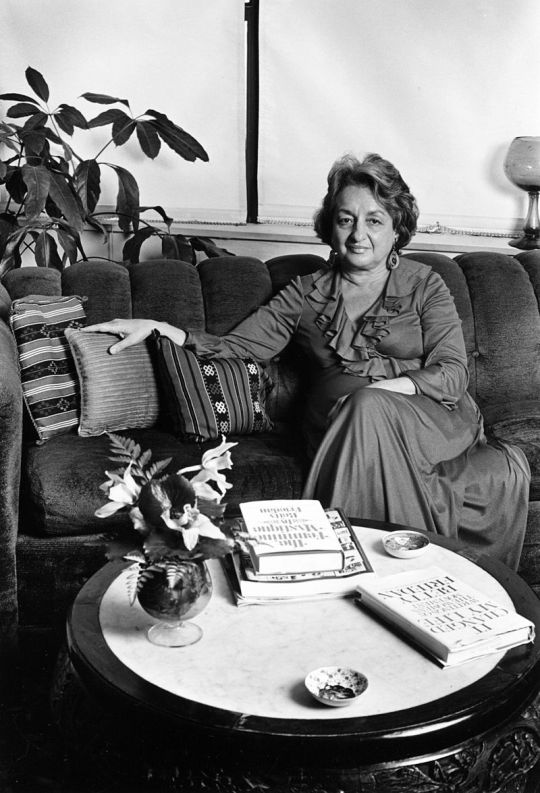
The recent TV drama, Mrs. America depicts the struggle to ratify the Equal Rights Amendment in the USA in the 1970s. The popularity of this TV series demonstrates a renewed interest in the women’s liberation movement and certain prominent and influential American feminists, namely Betty Friedan, Gloria Steinem, Shirley Chisholm and Bella Abzug.
February 2021 marks the 100th anniversary of the birth of Betty Friedan, one of these second wave feminists and author of the seminal feminist text, The Feminine Mystique. She was born Bettye Naomi Goldstein to a Jewish family in Peoria, Illinois on 4 February 1921. Her mother, Miriam Horwitz, was an unhappy housewife whose parents, Hungarian Jewish immigrants, did not allow her to go to university. Miriam encouraged Betty to do the opposite, and she strongly supported her daughter’s education. Betty went to university in Smith College, graduating in 1942. She then studied Psychology in the University of California, Berkeley, for a year. Thereafter, she worked as a journalist in New York, writing about the Jim Crow laws and anti-Semitism. Later, she worked as a women’s magazine writer. In 1949, she married Carl Friedman (later Friedan), and they had 3 children. They got divorced in 1969.
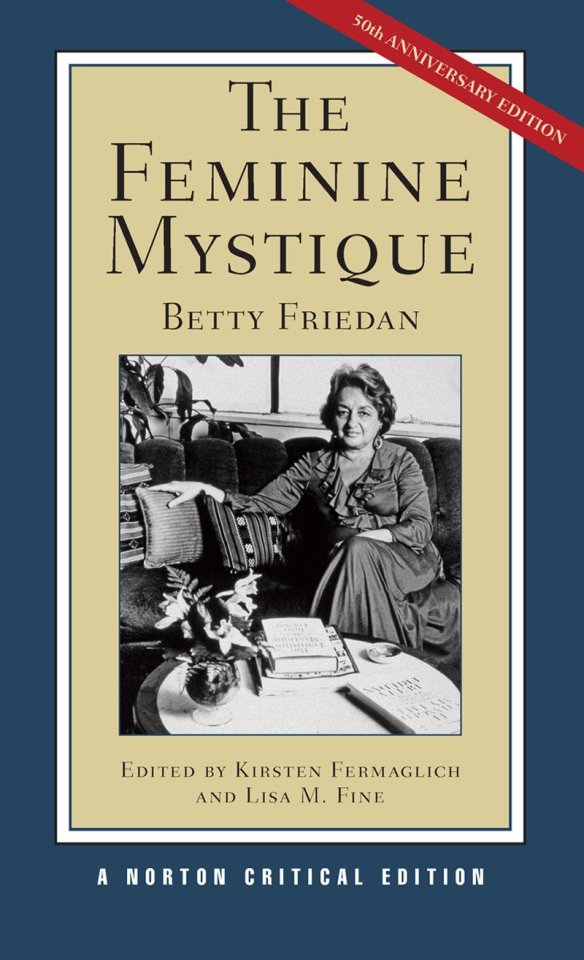
In 1957, Betty attended the 15th anniversary of her graduation from Smith College. At this reunion, she conducted a survey on her former fellow students (females) to explore the direction of their lives since graduation. She was perturbed by the amount of discontent among them. This revelation about the lives of her peers led to the writing of her book, The Feminine Mystique. This publication recounts the dilemma of suburban housewives, who are expected to spend all of their time on domestic duties and the rearing of children. They are overshadowed constantly by the thought, “Is this it?” They feel guilty for not being satisfied with their role, but they cannot deny the fact that they are unfulfilled. The “feminine mystique” of the book’s title is the societal assumption that household duties and motherhood alone will give women a sense of achievement. Friedan coined the phrase “the problem with no name” to describe women’s unhappiness with and inability to live up to this feminine mystique. She contended that women could have a successful career as well as a family.
The book sold three million copies and resonated with many suburban women because it showed them that they were not alone in their feelings of dissatisfaction. It was also strongly criticised for its homophobic language and for excluding Black and working class women. It spoke from a standpoint where every American housewife was white and middle class. Her solution to the problem of “the feminine mystique” (delegating housework) were also criticised for being inadequate and for failing to tackle the problem fully.
Friedan was aware of some of the shortcomings of The Feminine Mystique, and she wrote a second book to tackle some of the problems not resolved in the first one, including the double enslavement of working women who still had to do all the housework. The title of this book is The Second Stage. She also wrote numerous other books, including It Changed My Life: Writings on the Women’s Movement, which was published in 1976 and Beyond Gender: the New Politics of Family and Work, which was published in 1998.
Betty Friedan was a women’s activist and fought for reproductive rights, equal pay, equal representation and equality in hiring. She co-founded the National Organisation for Women (NOW) in 1966. In 1969, she launched the National Association for Repeal of Abortion Laws (NARAL Pro-Choice America). She co-founded the National Women’s Political Caucus (NWPC) with Gloria Steinem, Bella Abzug and several other women in 1971. The NWPC is a US organisation which supports and trains women who seek elected and appointed offices in all levels of government. Betty was quick-tempered, and she tended to lash out at people, including other feminists such as Gloria Steinem, even though they had similar aspirations for women. She was also quite disparaging in her treatment of lesbian women, referring to them as “the lavender menace”.
Later in her life, Friedan became a Zionist and fought to expose Anti-Semitism in the women’s movement. She received the Eleanor Roosevelt Leadership Award in 1989 and was awarded honorary degrees by the State University of New York and Columbia University. She died on her birthday, 4 February, in Washington DC in 2006, aged 85.
What advances for women were taking place in Ireland during the time of Betty Friedan’s activism in the United States?
The Irish Women’s Liberation Movement

In the summer of 1970, five women met in Bewley’s café in Dublin and decided that it was time for some drastic changes in Irish women’s lives; time to fight for equal rights. That day, these women held what was to be the first meeting of the Irish Women’s Liberation Movement (IWLM) group, the first radical women’s liberation group in Ireland. Although the group lasted little more than seven months, its legacy changed women’s lives significantly and positively. As proof of the success of the IWLM, the two injustices that this group fought hardest against – the marriage bar, which was abolished in 1973, and the illegality of contraception – are unimaginable in today’s world.
Margaret Gaj owned the restaurant, Gaj’s, on Baggot Street, where the IWLM would meet every Monday night. Margaret Gaj was passionate about women’s rights. Her circle of friends included Sinn Féin official Máirín de Búrca, journalist Mary Maher, who was interested in socialist issues, Máirín Johnston, who was a member of the Communist Party and who was also active in the Labour Party and Dr. Moira Woods, who was in an organisation called Irish Voice on Vietnam, which protested against the war in Vietnam. These five women started the IWLM group that day in the summer of 1970 in Bewley’s café, but around a dozen women were actively involved in the founding of this women’s organisation, the majority of them journalists. Nell McCafferty and Mary Kenny, both journalists, were two prominent founders of the IWLM.
Chains or Change was the title of the IWLM charter. It was put together in the form of a booklet which detailed the goals and ideals that the IWLM strove for. There were 6 demands: equal pay; an end to the marriage bar that kept women from working after they got married; equal rights in law; justice for widows, deserted wives and “unmarried mothers”; equal education opportunities; and the legalisation of contraception. Neither abortion nor divorce were mentioned at all in Chains or Change. When the most basic civil rights for women were being fought for, abortion and divorce did not even arise because they were not considered to be a priority. The booklet was a milestone in the history of women’s rights in Ireland, because it was the first time that anyone had published a comprehensive list of the injustices that church, state and social code perpetuated against women.
Nell McCafferty

Nell McCafferty was born in Derry. She got her degree from Queen’s University in Belfast and trained as a teacher, but she could not get a job in Derry, because the Protestant schools knew she was Catholic, and the Catholic schools did not think she was a real Catholic but, rather, a communist. She moved to Dublin to work as a journalist for the Irish Times. Nell writes in her autobiography of an incident from when she first moved to Dublin; she wanted to buy a record player on hire purchase but was told that no woman could sign an agreement without the co-signature of a male guarantor. A male stranger signed for her because she did not know any men in Dublin. This man was unemployed, and her own earnings amounted to five times more than his welfare entitlements.
Nell was a founding member of the Irish Women’s Liberation Movement (IWLM). In the IWLM, Nell was someone who could be depended upon to put forward forceful arguments that were backed up by accurate facts, and she could convey them both in writing and in person.
Nell’s journalism was objective, and she used it to bear witness to the struggles of the oppressed. She did not even have to give her opinion; her writing style and her description of what she observed in society were enough to expose hypocrisy and injustice without her having to comment on the issues herself. As well as being a feminist activist, Nell was also a civil rights activist on issues in Northern Ireland. When she started to work at the Irish Times, she joined the “women’s page” staff. Initially, she was fearful that this would involve writing about fashion, cooking and babies, but it actually enabled her to write on issues regarding women’s liberation and women’s rights.
The Contraceptive Train

In May 1971, the IWLM founders organised what became known as the “contraceptive train”, which was a protest against the fact that contraceptives were illegal in the Republic of Ireland. Nell McCafferty said that she had got the idea for the contraceptive train when she was in Northern Ireland at a civil rights march. The march went from North to South, and at the border, a student activist called Cyril Tallman held up a copy of Edna O’Brien’s novel Country Girls in one hand and a Durex condom in the other, saying that both were banned in the South. Nell was initially indignant about the condom, but the following year when the IWLM was talking about contraceptives, Nell got the idea of reversing the journey from Dublin to the North.
There was a ban on contraception in the Republic of Ireland, which was enshrined in the 1935 Criminal Law Act. This made the importation, distribution and sale of contraceptive devices a criminal offence. Advertising contraceptives was also illegal. The contraceptive pill was available in Ireland only on prescription, as a “menstrual cycle regulator”.
There were 47 founders and members of the IWLM on the contraceptive train on 22 May 1971, just enough to fill two carriages. However, when Nell McCafferty asked for a packet of contraceptive pills in a Belfast pharmacy, she was asked for a prescription, and the same happened when she asked for a coil, loop and Dutch cap. It turned out that the only contraceptives that were available in Belfast without prescription were condoms and spermicidal jelly. Nell was not happy with the prospect of taking a stand at Dublin customs with just condoms and spermicidal jelly, so it was decided that packets of aspirins would be bought, since they were similar enough in appearance to contraceptive pills that it was hoped they would pass for same! When the women arrived at customs in Dublin, the customs officers told them they were breaking the law, but let them through, because arresting them was not an option for them. The contraceptive train accomplished what it set out to do; the state refused to lift the ban on contraceptives, but it also failed to enforce it. The IWLM exposed this hypocrisy and proved that women would be free to import contraceptives from the North into the Republic from then on without any interference from law enforcement officials. Nell McCafferty made a statement at the train station, and two of the women went on the Late Late Show on TV to talk about the experience.
Mary Robinson failed in March and May of 1971 to get the Senate to add her Contraceptive Bill to its order paper. Despite Mary Robinson’s and the IWLM’s efforts to legalise contraceptives, it was not until 1979 that the government passed the Family Planning Act. This Act allowed solely married couples to get access to contraceptive devices other than the pill with a prescription. Family Planning clinics were already selling condoms, but the government was turning a blind eye to this because they were accepting “donations” in exchange for the condoms. In 1990, the Irish Family Planning Association was fined £500 for selling condoms in the Virgin Megastore in Dublin. Finally, in 1992, the government extended legislation to allow supermarkets and retail stores to sell condoms. The contraceptive train literally set the wheels in motion regarding the legalisation of contraceptives, but it took a long time before the law was changed for the benefit of women.
References
-Code, L., ed. (2000). Encyclopedia of Feminist Theories. London: Routledge.
-Parry, M. (2010). ‘Betty Friedan: Feminist Icon and Founder of the National Organization for Women’, American Journal of Public Health, 100 (9), pp. 1584-1585.
-Shteir, R. (2021). ‘Why We Can’t Stop Talking about Betty Friedan’, New York Times, 3 February. Available at: https://www.nytimes.com/2021/02/03/us/betty-friedan-feminism-legacy.html (Accessed: 9 February 2021).
McCafferty, N. (2004). Nell: a Disorderly Woman. Dublin: Penguin Ireland.
Stopper, A. (2006). Mondays at Gaj’s: The Story of the Irish Women’s Liberation Movement. Dublin: The Liffey Press.
Reading list of books on feminism
Available on BorrowBox:
-Dear Ijeawele, or a Feminist Manifesto in Fifteen Suggestions, by Chimamanda Ngozi Adichie (published in 2017): https://fe.bolindadigital.com/wldcs_bol_fo/b2i/productDetail.html?productId=HCU_469861&fromPage=1&b2bSite=4813
-Feminist Fight Club, by Jessica Bennett (published in 2016): https://fe.bolindadigital.com/wldcs_bol_fo/b2i/productDetail.html?productId=PRU_398091&fromPage=1&b2bSite=4813
-Feminists Don’t Wear Pink (And Other Lies), by Scarlett Curtis (published in 2018): https://fe.bolindadigital.com/wldcs_bol_fo/b2i/productDetail.html?productId=PRU_574840&fromPage=1&b2bSite=4813
-Give Birth Like a Feminist, by Milli Hill (published in 2019): https://fe.bolindadigital.com/wldcs_bol_fo/b2i/productDetail.html?productId=HCU_655895&fromPage=1&b2bSite=4813
-We Should All Be Feminists, by Chimamanda Ngozi Adichie (published in 2014): https://fe.bolindadigital.com/wldcs_bol_fo/b2i/productDetail.html?productId=HCP_402800&fromPage=1&b2bSite=4813
Available in the Reference Library, Grand Parade
-Code, L., ed. (2000). Encyclopedia of Feminist Theories. London: Routledge.
-McCafferty, N. (1984). The best of Nell: a selection of writings over fourteen years. Dublin: Attic Press.
- Stopper, A. (2006). Mondays at Gaj’s: The Story of the Irish Women’s Liberation Movement. Dublin: The Liffey Press.
-Pierse, Mary S. (ed.) (2010). Irish Feminisms, 1810-1930. Abingdon: Edition Synapse/Routledge (5 volumes).
-Owens, R. (2005). A social history of women in Ireland, 1870-1970. Dublin: Gill & Macmillan.
-Connolly, L. and O’Toole, T. (2005). Documenting Irish Feminisms: the Second Wave. Dublin: The Woodfield Press.
-Connolly, L. (2002). The Irish women’s movement: from revolution to devolution. Dublin: Lilliput Press.
-Rose, C. (1975). The female experience: the story of the woman movement in Ireland. Galway: Arlen House.
10 notes
·
View notes
Text
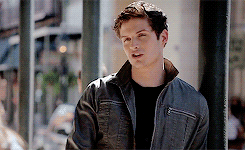
* daniel sharman, cis man + he/him | you know tobin 't.c.' childs, right? they’re 30, and they’ve lived in irving for, like, eleven years? well, their spotify wrapped says they listened to the art of getting by by laura zocca like, a million times this year, which makes sense ‘cause they’ve got that whole scuffed shoes and messy bedhead, faded denim jacket, nervous twisting of a wedding ring on his ring finger thing going on. i just checked and their birthday is june 3rd, so they’re a gemini, which is unsurprising, all things considered.
( CW : cancer & death ) .
hello ! im gel and this is my little runt t.c. ! lmk if you wanna plot something
full name : tobin childs .
preferred name / nickname : t.c.
age : thirty .
birthday : june 3rd .
sexual orientation : straight .
relationship status : widowed , single .
occupation : pediatrician .
residence : port apartments .
history ––
t.c. was born in hackney , london . he’s gone by t.c. ever since he can remember and rarely ever allows people to call him tobin ( even his family ) .
his parents went through a horrible divorce when he was 13 , at which point he moved to the usa with his mother to live with his grandparents . his father stayed in england with his then-girlfriend , now his wife and t.c.’s stepmother .
he and his mother ended up in wrightsville beach, a small town near wilmington, nc.
essentially based off of landon from a walk to remember : an absolute troublemaker as a teenager . completely aimless and just uncaring caring about his future . his senior year , he and his friends ended up getting a boy’s leg broken after a prank went wrong . instead of being expelled , t.c. was only made to do a multitude of service/community projects . and that’s how he becomes close to avery , when they’re paired up in the school play . his friends had always disliked her , because that’s how the status quo was – he was in the popular crowd and she was the daughter of the local minister .
cancer cw // they grew closer , and after getting past some petty high school drama , they began to date . it’s not until several dates later that avery tells t.c. that she has leukemia , and she’s not making any plans for the future . and t.c. goes to his estranged father , a doctor , to beg him to help avery , but despite their best efforts , there’s nothing that can be done .
cancer cw // avery’s condition worsens , and she ends up in the hospital . she decides to forgo further treatment , wanting to be able to enjoy the time she has left . on the night of their graduation, t.c. asks avery to marry him , and she accepts . they get married a week later with their closest friends and family , avery’s father officiating .
death cw // they spent the summer as a married couple , and avery passed away that fall. and as a result, t.c. became a very young widow .
t.c. tried his best to heal and move on , working odd jobs and making plans to go to college then medical school , but being in a town full of memories was just too painful so he decided to leave .
he moved to irving , nc where his aunt ( his mother’s sister ) and her family lives . ( this was about 11 years ago )
he worked as a waiter for about a year while taking online classes at the local college , before he transferred to unc chapel hill . he graduated in three years and then went to attend medical school at wake forest .
originally , he planned to work in oncology but instead of it being a helpful part of his healing process like it can be for some , it actually just forced him to remember a lot of things about avery and it hurt too much . so he chose to become a pediatrician instead , since he loved working with kids and he was pretty good at comforting the parents when he needed to .
now ––
t.c. definitely considers irving his home now , but he still does his best to visit his mom and her boyfriend in wrightsville beach . he also visits avery’s father every now and again just to catch up and to make sure he’s doing alright . there are four times a year he will always visit though – avery’s birthday , his birthday , his and avery’s wedding anniversary , and the anniversary of avery’s death .
he works as a pediatrician which surprisingly isn’t as stressful of a job as he thought it would be . he absolutely loves working with kids and he’s very committed to his job .
becoming a widow at such a young age really put a lot of things in perspective for him so he’s a lot less indecisive and apathetic as he used to be .
that being said , he stills finds it hard to get up in the morning sometimes . he’ll wake up about 15 minutes before his shift starts , not because he overslept , but because he laid in bed staring at the ceiling for thirty minutes .
he still has an english accent but it’s not as obvious as it used to be when he first moved to the us . it’s definitely still there but there are slang words that he doesn’t really say with an accent , or with just a very faint one .
personality ––
the grief he experienced from losing avery was something that was incredibly hard for him to work through , but a lot of what he does now, he does to make her proud . she still serves as motivation for him to get up and go do things , because he knows that she wouldn’t want him just sitting around .
he’s an all-around good guy , though a little quiet at times . he sometimes tends to fall a bit too deep into his thoughts , but overall , he’s charming and really sweet .
he loves being around people , but on a bad day , it can be very draining for him .
when he gets anxious , he fiddles with the ring on his hand , which he hasn’t taken off and doesn’t ever plan to. with how often people ask about the ring , he’s grown more used to telling the story of him and avery but most people notice the way he still gets a little choked up every time .
hobbies include : writing , volunteering , cooking ( not baking ) .
wcs ––
ride-or-die best friend - they’ve been friends since t.c. blew into town and they’ve been inseparable since
exes - these probably didnt last long bc he genuinely feels like he’s used up his one ‘true / epic love’ on avery ; could’ve ended well or badly
neighbor(s) - would love like a cute little apartment group that gets together and has dinner parties and regular parties and movie nights , game nights ,etc.
someone he volunteers with - they could be friends who just decided to volunteer somewhere together or they could’ve met when they were both volunteering at the same place
childhood friends / enemies ? either from london or from wrightsville . it would be cool to have someone who knew him before avery .
former coworkers – from back when he was a waiter
college classmates – at unc chapel hill
current coworkers – other doctors , medical professionals , etc.
friends of his aunt , friends of his aunt’s family
friends , in general !
literally anything ! i’m super super down for anything so lmk if you wanna plot
13 notes
·
View notes
Text
So there’s a really interesting interview with Deborah Pratt here. If you don’t want to pay for it, I’ll paste what I can below, but a few points first.
Deborah says she doesn’t know where Dean is, and says she misses him. I guess she hasn’t had contact with him since he left for NZ? And with Russ Tamblyn saying Dean’s hanging in there in answer to a recent Twitter question, that brings up more questions about his condition.
Deborah claims she came up with the idea of Quantum Leap, which I’ve never seen come up before. Also Don wanted to send Sam home?? I feel like she’s misremembering a lot of details/making herself seem better than she is.
“Theorizing that one could time travel within his own lifetime, Dr. Sam Beckett stepped into the Quantum Leap accelerator and vanished… He woke to find himself trapped in the past, facing mirror images that were not his own, and driven by an unknown force to change history for the better. His only guide on this journey is Al, an observer from his own time, who appears in the form of a hologram that only Sam can see and hear. And so Dr. Beckett finds himself leaping from life to life, striving to put right what once went wrong, and hoping each time tht his next leap will be the leap home…”
The premise of Quantum Leap succinctly and empathetically explained by a voice that spoke to viewers week to week, setting the scene at the opening of the episode. It is a voice that left an indelible print on the show, from its inception to its finale. This is the voice of its Head Writer. No, not Donald P. Bellisario, but a woman of color who was leaps ahead of her time – co-executive producer and uncredited co-creator, Deborah M. Pratt.
Deborah wrote or co-wrote 40 episodes of this sci-fi gem and her authorship of the show runs deep through its five seasons. Aside from the opening narration, Deborah is audible as the voice of Admiral Al Calavicci’s pocket computer, Ziggy. She also guest stars in the episode ‘A Portrait for Troian’ (S2, Ep11) as a grieving widow who hears the voice of her husband calling her.
Deeper still, Quantum Leap was a family affair. It was co-created with her husband at the time, Bellisario, and their daughter, also named Troian, appears as a little girl in ‘Another Mother’ (S2, Ep13, who can not only see Al, but also sees Sam as he really is, rather than as her recently divorced mom.
Prior to helming Quantum Leap, Deborah rose through the ranks as an actress, racing the screen in Happy Days, CHiPS, The Dean Martin Show and many more, and was also a writer on shows such as Airwolf and Magnum P.I. She is a five-time Emmy nominee, Golden Globe nominee and winner of countless other awards. She went on to produce CBS comedy cop show, Tequila and Bonetti, and then to co-create and produce the TV series adaptation of Sandra Bullock tech thriller, The Net. But Quantum Leap was Deborah’s brainchild – one which is emblazoned on the hearts of its faithful fans.
Deborah has since moved into directing, including on hit show Grey’s Anatomy (2020), but was generous with her time when spoke in late 2020 to leap back into the past.
It does seem that you were really ahead of your time as a female head writer and a showrunner in the ’90s, especially in science fiction TV. Was it hard for you to progress and to get Quantum Leap made?
“Usually women were relegated to comedy, very rarely was it drama or heavy drama. It’s changed, finally, with people like Shonda Rhimes (Grey’s Anatomy, Bridgerton, Scandal). But yes, I was a true pioneer, even though I don’t have a ‘created by’ credit, it was a ‘co-created by’ show – with Don. I brought him the original concept, and we were married, and he said ‘Let me just run with this. I can get it made.’ And to his credit, he understands how to tell a story to the audience. He simplified it in a way that you could welcome Quantum Leap into the world. But it was still a tough show to sell.
“I think we went back three times to pitch it to the network. It was complicated to explain. Brandon Tartikoff [the executive] said ‘It’s a great idea – It’s like nothing I’ve ever seen on TV. Let me think about it.’ Then he asked us to come back, ‘I want you to pitch it to me like I’m six years old, then pitch it to me like I’m 80 years old’ and finally he took it. Then even after the show first aired, they decided to introduce that opening where I tell the story. That was created to explain every week to a new viewer what was going on and it worked really well.”
On rewatch now, the best part of three decades later, the show feels groundbreaking in terms of the subjects you cover. Did you feel like you were pushing the envelope?
“I feel we got to do so much on that show. I remember when I did ‘Black on White on Fire’ [S3, Ep7], the networks in the South in the United States wouldn’t air it because it was a black/white relationship. Even though there is no scene where you see a black person and a white person being intimate.
You saw Sam, who was white, and the girl who was white, but because he was playing someone who was black, it was an issue. They wouldn’t air the show in the South. This was around 1992.
“It was challenging for sure. I think we pushed the limits.
“The beauty of the show too, was that it was about hope, which I see so little of on television today. Everything’s so dark, so mean, so vicious, bloody – how many people can you kill? How mean can you make your lead characters and antiheroes. I think it’s why I didn’t work as much afterwards. A) I was a woman, and B) a black woman. There weren’t any black female executive producers that I knew of in drama. I got to do <em>The Net</em> because it had a female lead, but that was almost ten years after <em>Quantum Leap</em> was created. Any show I brought in that had a black lead was never bought, or a female lead, was never bought.
“I remember I wrote a big action piece – like an Indiana Jones, but female-driven, feature film – and pitched it and the studio executive said, ‘Yeah, yeah, but when did the guy come and rescue her?’ And I said, ‘She doesn’t – she rescues him.’ The look on his face. I’ll never forget it as long as I live.”
The show darted around TV schedules, but the fans remained with it, and still to this day hold it dear to their hearts. Was that palpable at the time, or has that grown since?
“I think near the end of the first season, Harriet Margulies [Production Assistant on the show] found a chat room after an episode where people from across the country talked about it and it became the ‘watercooler.’ We were the first television show that had a chat room as a watercooler. Before that, it was literally you going into your office and standing around the watercooler and talking about movies or TV shows you were watching. Suddenly, it was online. So we started to go into the chat room and talk to people about what they liked and what they didn’t. Not necessarily telling them who we were, but that fan base is what kept us on the air because the network didn’t know what to do with us. There was no show like it, so they couldn’t like pair us with anybody.
“In the five years we were on, I think they moved the show six times and the fans still found it, they followed it, they watched it. That’s how we knew we had something unique and special. To this day, I’ll go into a meeting with a young executive who’ll go, ‘I have to tell you, I loved Quantum Leap. I used to watch it with my mom and dad’.”
Scott Bakula was such a great hero and heartthrob as Dr. Sam. What was he like to work with?
“He was so approachable, you know, in the sense that he had this great, easy acting style. He took chances and he was likeable – in a way that he could be a man’s man and a woman’s man at the same time. He’s really a brilliant actor. I am saddened by the fact that he has not had the opportunity to do movies in the way that could really have lifted his career. He’s had an incredibly successful television career. He’s a good actor. He’s a kind man. I’ve always admired him and felt like when we were working together, I had a friend that I loved to write for because he was always so giving and willing and wanting to take chances as an actor. So it was fun to go down to the trailer and say, ‘Guess what? You’re going to be pregnant this week’.
He does everything in the show from sing and dance to baseball, football, hopping over car bonnets to fights and martial arts. Did you know he had such a wide skill set from the outset, or did you write the challenges for him to rise to?
“I think we had conversations with him about that. I also knew that he had been on Broadway doing musicals. I knew he could sing and dance. When I wrote ‘Sea Bride’ [S2, Ep20], I wrote a tango number – that was unique for him. When Don knew that he could play the guitar… We asked Scott, ‘What do you want to do?’ And he said he wanted to do a musical and I think that’s how the ‘Catch a Falling Star’ episode [S2, Ep10] came about, which involves a performance of ‘Man of LaMancha’.”
Admiral Al Calavicci – he’s so much more than wisecracking and surface jokes or flirtation. There’s so much depth to his character. Was that fleshed out early on with an end to end journey for him in mind, or did his character evolve through the seasons?
“It was a little bit of both. Dean Stockwell had been on Broadway at five-years-old and had been a major child movie star. I remember when we wrote the show where Sam had the chance to save Al – ‘The Leap B4, Ep1] – he was so good in that. I’ll never forget how beautiful that was. And then in the very, very end, I love the fact that Sam did change history and Al ended up wih his beautiful wife with five kids.
“I remember once asking Dean, ‘Do you want us to write more drama for you? Big dramatic moments?’ And he said, ‘I want you to look at me right now. I want you to tell me what you see.’ And I said, ‘Well, your performance, the pain, fear and loss and all that, because you’re such an incredible actor.’ And he said ‘For me to perform that, I have to be it and live it. So don’t do too many.’
“He had that depth of acting talent. He is so good – Dean, wherever you are, I love you. I miss you.”
The episodes that follow later in the seasons involving celebrities – Sam as Elvis, Dr. Ruth, or Lee Harvey Oswald, was that kind of a direction that you always foresaw? It feels like a sea change as the show progressed.
“The stories were designed, for the most part, to be so, so simple in that they were everyday stories. They weren’t change-the-world stories. I think the biggest one was Lee Harvey Oswald, and maybe the one involving Marilyn Monroe – those were with people that could have had a ripple effect.
“But there were other little kisses with history in the show, but they were very hard to do. They ran into a child version of Donald Trump in a taxi cab, [‘It’s A Wonderful Leap’ – S4, Ep18], then they ran into a little boy who is supposed to be Michael Jackson – Sam teaches him to moonwalk [‘Camikazi Kid’ – S1, Ep8]. The first time I did a kiss with history was ‘Star-Crossed’ [S1, Ep3] – Sam meets up with the woman that left him at the altar and they’re at the Watergate Hotel. That was fun stuff.”
Sam managed to awkwardly kiss lots of ladies in that sense of ‘Oh God, they’re going to kiss me and I’ve got to be this person, what am I supposed to do.’
“We never, ever really discussed what happened to Sam. We didn’t want him to be encumbered by a relationship. But I didn’t get to kiss him. My husband wouldn’t leave the set on the episode I was in!”
Your move into directing – from your TV drama Cora Unashamed back in 2000, to Grey’s Anatomy just last year. Is that something you wanted to do sooner? Were there barriers prohibiting you?
“I was supposed to direct on Quantum Leap four times. Every time it was coming up, something would happen. The only women who directed on the show were two black women – Debi Allen [Fame, Everybody Hate Chris, Jane the Virgin] and the other was a woman named Anita Addison. They each did two shows.
I said, ‘If I’m not doing this, I want black women.’ There were no other black women. And it was a fight. I tried to get black women directors on the show, but I could never get them past.
Then when I went to do The Net, the studio blocked it. I give huge amounts of credit for executive producing to Shonda Rhimes and what she has been able to do. She did what I thought I was going to be able to do. She’s so talented and I’m such a fan of her and her shows. I’m looking forward to what she’s going to do on Netflix. And it was an honour to do Grey’s Anatomy because I’m a fan of the show and I’m really grateful to have that opportunity.”
Has there been progress in terms of female directors and filmmakers being given opportunities?
“It’s very hard for women because there aren’t a lot of women executives at the studios. There are more now. And so there is an evolution that’s happening, but it still feels slow. There were shows run by people I gave opportunities to back in the day, but when I said, “hey, I want to direct on your show,” the response was, “oh, there’s too much machismo. There’s too many male hormones around here. They’ll eat you alive.” And I went, “no, they won’t, you’ll protect me. How about if I do my job?” And that was only last year. But there are more opportunities. There are more women making decisions, but we have to do more because women’s stories and women’s voices are more than half the population – we need to hear those stories. The historic ones as well as the contemporary ones.”
Is there a leap that was your favourite overall? That you feel made you made your mark with?
“’The Color of Truth’ [S1, Ep7] touched so many people and it opened a dialogue. I remember we got a letter from a teacher who said she brought the VHS in and she played it to her class, up until Jesse [Sam as an ageing black chauffeur in ’50s Deep South] goes and sits down at the counter in the restaurant. Then she stopped it and asked the students what they thought happened next. They thought that he just ordered lunch. And then she played the rest and that hostility and the animosity he endures and the fact that he had to get up and leave really incensed these children. They had never heard of or experienced racism. They didn’t want to believe that it really happened. This is how history gets buried and why television is so powerful and important. It opened a conversation that she could not have necessarily had in her classroom, according to her, had she not brought that show in to share with her students.
“We had another letter that was very moving, and I want to say it might’ve been ‘The Leap Home’ [S2, Ep1-2]. There was a couple who wrote and said they had a child that was on a cancer ward and every Thursday the whole ward would watch Quantum Leap. Their child was dying and they had kind of given up and it was just time to help that child transition out of this world. They watched the show and she said, ‘We realized we gave up hope. When we watched the show, we realized we didn’t have to give up hope and we wanted to write to you. It’s now six months later and the crisis has passed. The cancer is in remission. Our child is up and going back to school. And we just want to thank you for reminding us that hope has its own power’.”
Its power and poignancy has never diminished. Though the final episode, ‘Mirror Image’ (S5, Ep22), with the caption saying Sam doesn’t get to go home, does leave a sucker punch.
“That was our last fight. Don was going to send him home. And I said, ‘You can’t, you can’t send him home. If you ever, ever, which we’ve not ever been able to get Universal to let us do it, want to do a movie… If you want to keep the story going, you have to leave Sam out there in the hearts of people, leaving people thinking he could leap into their lives’. And at first Don said, ‘No, no, we need to bring him home’. And I said, ‘Do not bring him home. Or you will end the show. If you leave the hope out there, that Sam is out there and he could leap into your life and make a difference’. You keep the show alive in the hearts and the minds of the fans. And I think I was right.”
The ending was poetic for me as a viewer, but your point about Sam still being out there – Is there a leap back to the future for Quantum Leap?
“I started writing a project called <em>Time Child</em> about Sammy Jo Fuller. I actually wrote a trilogy in Season 5 where Sam leapt back three times into the same family and the second time he leapt he ended up in bed with this character and conceived a child. Then the third time he leapt in, he met her at 10 years old – a girl named Sammy Jo Fuller. So in my vision, Sammy Jo Fuller grows up. I actually have Al say, ‘Sammy is in the future with me. We’re trying to bring you home.’ That was my set-up way back in 1993, in Season 5, to say someday, Sammy Jo being his daughter might take over….
“This was the ’90s. Women heroes didn’t exist really – other than comic books – Wonder Woman was there, Super Girl was there. But I set it up in the show that Sammy Jo was going to bring him home. Sadly, I have not been able to get Don and the studio to give me the green light for Time Child. It might happen someday.”
Right now, it feels like we need more shows that offer hope. Is there a place for a reboot on streaming platforms?
“Universal keep saying they want to bring it back. They’re not going to give it up to Netflix because they have [US streaming service] Peacock now and still have NBC. I personally think it should be on a full blown network. The hard part would be that it would have to be recast if there was a female version using my character Sammy Jo Fuller. Or if they just redid the show, it would be interesting in the sense that there was such an innocence about the show. I still believe that there is an audience out there that wants it, that longs for looking at the past through the eyes of somebody in the present. But who would that person be if you did the show now, what are those eyes like?
“We’re living in the time of COVID and suddenly you go back in time. How do you warn people that this is going to happen? How do you warn people about 9/11? How do you warn people about things in the future?
“I mean, one of the beauties of that innocence too, and I thought that was a great gift from Don to the concept, was that Sam’s memory as Swiss cheese – he didn’t remember things and that made it a lot easier, and Al was not allowed to tell him what was happening in the present. There’s a lot of detail woven into the mythology that allowed it to be innocent and in the moment of time travel. You didn’t have to drag the future back with you.”
Do you have an actress in mind to play Sammy Jo in a reboot?
“Oh my gosh, Jennifer Garner. I always felt she would be a great female Sam. She’s an ‘every woman.’ She’s funny. She does great drama. When I think of a female Sam or even Sammy Jo, I think Jennifer – in a heartbeat. She’s so great in Alias. That show just never stopped. You couldn’t take a breath. If I had to go younger, somebody that would have that kind of believable humour that you think could actually rescue you – maybe Jennifer Lawrence. She’s pretty formidable in that sense.”
“To bring Quantum Leap back. If they’re thinking about it, now’s the time to happen. Tell people to write to Universal! Write for the attention of Pearlena Igbokwe – if anyone can bring it back, she can do it. Write! Write to Pearlena – she’s the one that’ll make it happen. That’s how we stayed on the air for five and a half years. Fans unite and write!”
11 notes
·
View notes
Text
“When the unhappy Louis VII and Eleanor settled again in France, the king listened to his respected counselor Suger, who advised him to forgive and forget, and to resume a normal married life. The character of the couple’s marriage had changed, however, and the partnership that it had been before the crusade could not be revived. Eleanor no longer had any role in governing the kingdom, and the post-crusade period of her marriage marks a decline in French queens’ influence in royal governance that would continue after her departure from Louis’s side.
With the death of Abbot Suger in January 1151, no one at court could give the king sound advice about his marital situation, and some courtiers worked to turn his mind toward setting aside his wife. Eleanor herself had no desire to remain married to Louis; her wish to separate from her husband had remained fixed ever since he had taken her away forcibly from Antioch. Giving birth to a son would have done much to rehabilitate Eleanor’s reputation, causing the French to overlook ugly gossip that had reached them from Antioch, but perhaps Eleanor was not utterly disappointed at the birth of another daughter, realizing that her failure to give birth to a son was likely to push Louis in the direction of a divorce.
The king had matters of state as well as his unhappy marriage to occupy his mind, and he had to give attention to the security of his domains. The expanding power of Geoffrey Plantagenet of Anjou presented a serious threat, upsetting a balance of power that Louis had worked to achieve in northern France. Geoffrey of Anjou’s wife, Matilda, the only surviving legitimate child of King Henry I of England, had been left a childless widow in Germany on the death of the emperor in 1125. Her father had summoned her to England to be groomed as his heir, and had browbeaten his barons into acknowledging her as his successor by 1127.
The English king then looked for a suitable husband for Matilda, settling on Geoffrey le Bel, count of Anjou. She was Geoffrey’s elder by a decade and her strong personality and powerful sense of her lofty status as the German emperor’s widow ensured a stormy marriage. Yet she would bear her much younger and unloved second husband three sons, Henry, Geoffrey, and William. In 1139, Matilda had sailed to England, launching a struggle to wrest the kingdom from her cousin Stephen of Blois who had seized the throne on her father’s death. Matilda’s fight for recognition as Henry I’s heir would lead to civil war in England and Geoffrey’s invasion of Normandy.
…The seventeen-year-old Henry Plantagenet would soon take up the claim to England’s Crown that his mother had been pursuing since 1139 against Stephen of Blois. Should Henry become king of England, his combined power as king, duke of Normandy, and heir to his Angevin patrimony in the Loire valley would present a vastly increased threat to Capetian dominance within the French realm. Faced with this challenge from Count Geoffrey and his son in Normandy, Louis VII responded by supporting the claim of Eustace, son of Stephen the English king, to the duchy and investing him with the ducal title, resulting in war on his Norman frontier against his Angevin foe.
With Abbot Suger’s guiding hand removed, the aged Bernard of Clairvaux, still determined to take center-stage in French affairs whenever possible, intervened to negotiate a truce. The count and his eldest son came to the French court for peace talks in the summer of 1151, giving rise to a new complication in the royal marriage with Henry Plantagenet’s entrance into Eleanor’s life. During the Angevins’ visit, Eleanor’s first meeting with the young duke of Normandy took place, and she renewed her acquaintance with his father Geoffrey.
The count, so handsome that his subjects called him “Geoffroi le Bel,” had been among the French nobles on the Second Crusade, where he had proven to be one of the more valorous knights. According to some gossips, the French queen knew Geoffrey all too well. Tales of Eleanor’s alleged adultery with Geoffrey le Bel were reported—or fabricated—many years after their meeting in Paris in writings first by Walter Map and later by Gerald of Wales, two courtiers who authored satirical accounts of Henry II’s court. …Of course, no evidence survives to prove or disprove the accusations of either Walter Map or Gerald of Wales, but they were no doubt embroidering on medieval legends and romances in which transgressing the incest taboo figured as a theme.
It seems clear that Henry Plantagenet made a powerful impression on Eleanor and that she found him attractive, his youthful vigor and boldness a seductive contrast to her husband’s meekness. The youth had only recently become a knight, dubbed by his great-uncle the Scottish king, and he had already proven himself “an intrepid warrior in the making,” taking up his mother’s fight for the English kingdom. Eleanor would have found young Henry charming and courteous, for he had received schooling in courtly conduct first at his father’s court at Angers, which has an important place in the history of courtliness, and later in England in the household of his uncle Robert, earl of Gloucester.
…At age eighteen, young Henry’s height was average, but he had a striking, though not handsome appearance, with a ruddy complexion and reddish hair, robust and powerful looking, with powerful limbs and a broad chest that gave evidence of strength and vigor. Perhaps Eleanor had heard the legend of the Angevin line’s descent from a demon-wife of an early count who always slipped out of church before the elevation of the host, and when forced to remain during that sacred moment, mysteriously vanished into thin air.
If so, that diabolical ancestry simply intensified Henry’s fascination for her; he appealed to her as an exciting, even dangerous personality compared to the lackluster Louis VII. Contemporaries commented on the favorable impression that young Henry made on the French queen, and her fascination with him may have been a bit too obvious to hostile courtiers. Some modern writers go so far as to declare that Eleanor fell in love with the young duke of Normandy on meeting him in the summer of 1151. Yet her decision to take Henry for her second husband would not be governed entirely by her heart, but by political calculation.
Since he was already duke of Normandy and heir to the Angevin counts’ Loire valley lands, the youth was a near neighbor to Poitou, and Eleanor would have seen advantages in marriage to him. In addition he was a pretender to the Crown of England, for which his mother had been fighting for years. At the time, however, Eleanor may not have given too much thought to the possibility of becoming queen of England through marriage to Henry; she is more likely to have seen him simply as suitable to rule Aquitaine at her side as duke.
Although Eleanor undoubtedly felt an attraction for the youthful Henry, she may have calculated that should they marry, she—his elder by nine years— could establish herself as the dominant partner, just as she had dominated Louis VII during the first years of their marriage. Despite the introduction of a new threat to his marriage to Eleanor, Louis VII’s talks with the Angevin princes were successful. Count Geoffrey and his son realized that for victory in their struggle against the English king, Stephen of Blois, it was essential to prevent Louis from aiding Stephen, who was claiming Normandy for his son Eustace.
…Shortly after the two Angevin princes’ visit to Paris, Louis VII warmed to the idea of the divorce long desired by Eleanor, and a decision to pursue a royal separation was reached apparently by mutual consent. It seems that the king was not unmoved by Henry’s gallantry toward his queen or by her receptiveness toward the young duke’s attentions during his August visit to the French court. Observers commented that Louis was “inflamed by a spirit of jealousy” in the last months of 1151. It is not impossible that Eleanor had gone so far as to try provoking Louis’s jealousy by flirting with Henry. Perhaps she hoped by such means to incite her husband to divorce her.
In such private conversations as those that had inspired the king’s suspicions at Antioch, it is not improbable that she and Henry gave hints to one another of a future together. In any case, warnings from Louis’s courtiers that Eleanor’s behavior was bringing on public ridicule, threatening to expose him as the laughing stock of all Europe, would have made an impact on the king’s thinking. The first steps toward separating soon followed the Plantagenet princes’ departure, and in the autumn of 1151 the royal couple made a tour of Aquitaine that “took on the appearance of a liquidation of the past.”
Louis knew that a divorce would result in the Capetian monarchy’s loss of Aquitaine, but apparently he was reconciled to losing the duchy, for he ordered fortifications demolished and his troops withdrawn in order to make way for Eleanor’s men. The couple held their last Christmas court together at Limoges, then moved on to Saint-Jean-d’Angély early in 1152. After presiding at their last court together, they parted company, with the king heading back to Paris and Eleanor staying behind in her duchy, probably moving on to Poitiers.”
- Ralph V. Turner, “A Husband Lost, a Husband Gained, 1149–1154.” in Eleanor of Aquitaine: Queen of France, Queen of England
#eleanor of aquitaine#eleanor of aquitaine: queen of france queen of england#high middle ages#french#english#history#henry ii of england#louis vii of france
16 notes
·
View notes
Text
Portraits of Selim II's daughters/II. Szelim lányainak portréi
Selim II had four daughters, Gevherhan, Şah, Esmehan and Fatma. Esmehan and Gevherhan became influental women of their era.
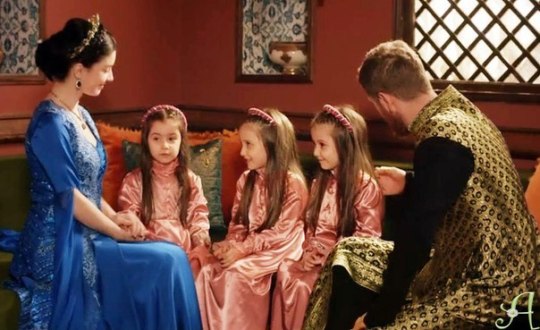
Gevherhan Sultan
Gevherhan Sultan was most likely born in 1544 as the daughter of later Selim II. Her mother was presumably Selim’s favorite concubine, Nurbanu, but considering her life path, we can’t be sure of that. She spent her childhood in her father’s province with her parents, sisters, and younger brother. A major change in their lives may have taken place in 1558, when Sultan Suleiman appointed her younger brother, Murad, to his own princely province. We are not left with any unequivocal evidence that his sisters accompanied Murad or not, but according to tradition, the girls who were Murad's full-sisters should go with him, so Esmehan certainly and perhaps Gevherhan left with the young prince also.
She moved to Istanbul in 1562 in the company of two of her sisters, Şah and Esmehan. Sultan Suleiman decided to marry Selim's daughters off in that year. Gevherhan's husband was Piyale Pasha, an admiral. During the sixteen years of their marriage, two daughters, Ayşe Atike (1563 -?), Fatma, and a son, Mehmed were born. During their marriage, there were rumors that Gevherhan had once stabbed one of their slaves with her own hands when she saw her husband stroking the slave girl's neck. It is not known whether this story is true, but it certainly well illustrates the assumption that a sultana could not have been humiliated or cheated by her husband in any way so that he could get away with it.
After the death of her first husband in 1578, she remarried in 1579, this time it was her younger brother, Murad, who chosed a husband for her, Cerrah Mehmed Pasa. Their marriage was balanced, with Gevherhan strongly supporting her husband’s political career. According to some sources, it was thanks to Gevherhan's support that Cerrah Mehmed Pasa was the one who circumcised Gevherhan's nephew the future Mehmed III in 1580. Either way, the event brought the pasha, the prince, and Gevherhan very close together. Three years later Gevherhan gifted a beautiful Bosnian slave girl to Mehmed when he received his own province. This Bosnian slave later became Handan, the mother of the future Sultan Ahmed I.
Gevheran and Mehmed Pasa were at the peak of their political careers when Mehmed III appointed Cerrah Mehmed Pasha as Grand Vizier in 1598. Thanks to her husband’s rank, Gevherhan was able to get into top political circles and certainly kept in constant contact with Handan and her son, Ahmed. The latter is supported by the fact that the influence of Gevherhan and Cerrah Mehmed Pasha did not diminish even after Ahmed's accession to the throne. Young Ahmed certainly wanted to express his gratitude to Gevherhan and Cerrah Mehmed for having played a very important role in bringing his parents together in the past. Ahmed believed that without Gevherhan and her husband he could never have been born, so he owes them a debt of gratitude for his existence as well. Unfortunately, Ahmed did not have the opportunity to reward Cerrah Mehmed, as the pasha died on January 9, 1604. However, he treated Gevherhan with great reverence, sending her thousands of gold coins, and a dress with sable fur, which was so rare that only Handan and Safiye received a similar one from the young Sultan in December 1603. In February 1604, Ahmed again donated a stable fur silk dress, but this time only Gevherhan and Handan received it. Ahmed later named one of his daughters Gevherhan, certainly in honor of his aunt. Gevherhan’s salary in Ahmed’s life was 350 asper per day, which was particularly high compared to her rank.
She did a lot of charity during her life, including building a madrassa in Cağaloğlu. Gevherhan lived a long life, certainly being still alive in 1623 when she last amended her will. She appointed his daughter's husband to be the superintendent of his foundations, in return for which he was guaranteed a daily salary of 80 aspers. The fact that she did not entrust it to her daughter may indicate that Ayşe Atike may have already passed away. But according to the will of Gevherhan, she also left money for her children, so perhaps in addition to Ayşe Atike, her other children also reached adulthood, or she possibly had grandchildren.
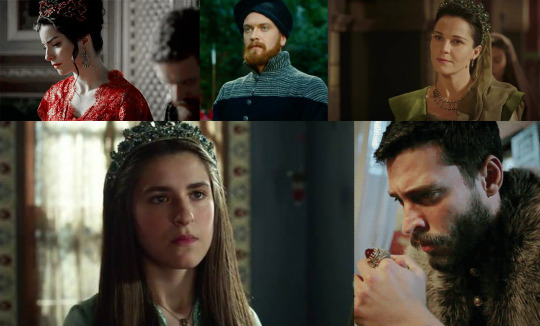
Şah Sultan
Şah was probably the future Selim II's eldest child, his firstborn daughter, borning in 1544. It has long been held that her mother was Nurbanu, but there is no evidence for this, and even second-hand evidence suggests that Şah was not Nurbanu's daughter.
In 1562, a great turning point came in her life, for on the orders of her grandfather, Sultan Suleiman, she was married off along her two sisters. For her, the chief falconer, Çakırcıbaşı Hasan Agha, was appointed as a husband, who was of lower rank than the husbands of her two sisters. This fact may also suggest that Şah may not be the future Murad III's full sister, so was not Nurbanu's daughter. Later, of course, Hasan Agha also has risen and became a vizier. Probably no child was born from this marriage.
She had been married to Hasan Agha for twelve years, after his death in 1574 she could choose a husband by herself. Her choice fell on Zal Mahmud Pasha, with whom she married in 1575 and they lived in true love based marriage. Their love is legendary and is a refreshing exception among political marriages. They had at least two children, a girl who married Abdal Han when she reached adulthood; and a son, Köse Husrev Pasa, who became an influential statesman and eventually died in a battle against the Safavids.
Unfortunately, Şah and Zal Mahmud were not able to take part in the upbringing of their children for long, for in the autumn of 1577 they both fell ill and, according to legend, they died at the same minute on the same day. However, the reality is less poetic, Şah died on November 3, while Zal Mahmud 12 days later. They were both laid to rest in the jointly built Zal Mahmud Pasha Mosque Complex. Their children were certainly raised by the Valide Sultan, Nurbanu until her own death in 1583, and then Sultan Murad III took care of them.
An ambassador was just present when Şah’s funeral took place and wrote of the event: “Today (3 November 1577) at 12 o'clock we witnessed the funeral of Mahmud Paşa’s wife, daughter of Sultan Selim. It was a modest ceremony. […] There was a crowd on either side of and behind the coffin. (Sokollu) Mehmed Paşa was first, the Chief Judge of Rumelia next to him. Behind them were Mustafa Paşa, Ahmed Paşa, Sinan Paşa, the Chief Judge of Anatolia, the governor of Rumelia and the Commander of the Janissaries, all docked in black clothes and riding horses. The Janissaries had replaced their usual headdresses with turbans."
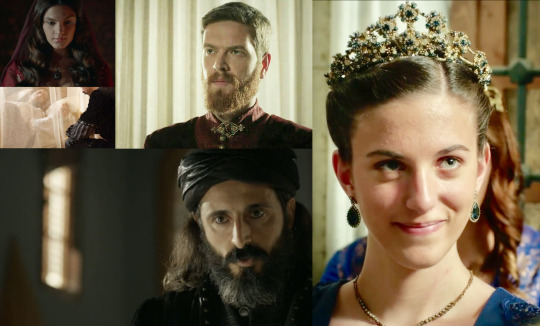
Esmehan Sultan
Esmehan Sultan was born in 1545 to Nurbanu and later Selim II. Unlike her sisters, Gevherhan and Şah, Esmehan was without a doubt Nurbanu's daughter. For this reason in 1558 she most likely followed Nurbanu and Murad to his new princely province and that was the place from where she moved to Istanbul in 1562 for her own marriage.
Of her sisters, Esmehan married the highest-ranking statesman, Sokollu Mehmed Pasha, Grand Vezir of Sultan Suleiman I, who later during the reign of Selim II, and even during Murad III he run the empire. At least four children were born from their marriage, three sons, Ahmed (1563? - 1566), Pir-Mehmed (1566? - 1567?), Sokolluzade İbrahim (1565 - 1622?), and a girl Safiye (1563? -?), who was married to Lala Mustafa Pasa, Grand Vezir's son.
Through her husband and her own rank, Esmehan was the most influential sultana of the empire for years. In wealth, only her aunt, Mihrimah, could overtake her, but in influence, almost no one could. With Sokollu Mehmed Pasha, they supported several grandiose construction projects, such as the Sokollu Mehmed Pasha Mosque Complex and the Esmehan Sultan Mosque Complex. Esmehan’s personality was very dramatic, which she often allowed to manifest. Thus, for example, she organized her nephew, Mehmed’s circumcision ceremony, which included a child being nearly killed by a hired assassin, but rescued by a nymph-dressed young girl.
Knowing her personality, it is not surprising that she also regularly supported her mother in her political affairs. Thus, for example, she also played a key role in convincing France to gave back two Turkish women capture on the sea. She also had an influence on her brother, which she and her mother tried to exploit. Nurbanu didn't really get along with Murad's favorite, Safiye, and she was doing her best to turn Murad to other women. Esmehan was there to help her mother and in the end, she was the one who successfully introduced two very well educated, beautiful women to Murad. Murad accepted the gift and from then on his monogamous relationship with Safiye ended.
In 1579, her husband, Sokollu, was murdered, widowing her at the age of just 34. The young woman immediately wanted to get married again and wanted a young, handsome husband at all costs, which was understandable given the fact that Sokollu was 40 years older than her. At first, she wanted the famously handsome Özdemiroğlu Osman Pasha, but the pasha rejected the marriage offer. Many wondered why anyone would reject the most influential woman in the empire. We will never know the answer, but one of the possible options is that Özdemiroğlu Osman Pasa was simply in love with his first wife and did not want to divorce, yet others believe that the appearance of Esmehan may have been the reason. Esmehan is one of the few sultanas whose appearance-records have survived. Those who were lucky enough to meet her all said that Emehan was short and not pretty or beautiful at all, but they also noted that her intelligence and cheerful personality still amazed the people around her. Esmehan may have inherited her appearance and nature from her grandmother, Hürrem Sultan, who was also thought to be short and not a classical beauty.
However, after the rejection, Esmehan finally found a young husband, Kalaylıkoz Ali Pasa, the governor of Buda. However, the marriage did not last long, for on August 5, 1585, Esmehan gave birth to a son and then died of complications three days later. The boy, Mahmud, survived his mother with a month. Esmehan was buried in the mausoleum of her father in Aya Sofia. Her son, Mahmud, was buried in the mausoleum of her first husband, Sokollu Mehmed.
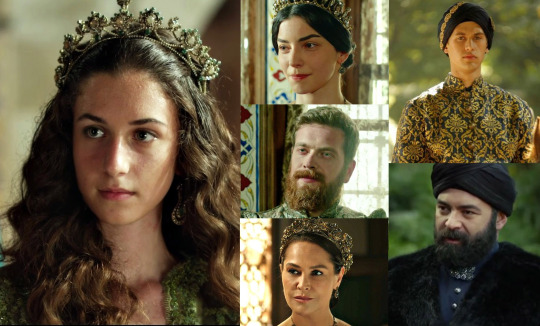
Fatma Sultan
Fatma Sultan was born in 1559 as the child of later Selim II and an anonymous concubine. Undoubtedly, Nurbanu was not her mother, as she was not in Selim's harem at Fatma's birth, and her will also reveal that Nurbanu was not her mother. Nurbanu had left Selim's province not long before when she accompanied Prince Murad to his province. Since 1546, Selim has paid special attention not to have more children, which is why the birth of Fatma is certainly due to an accident.
Fatma married Kaniyeli Siyavuş Pasa in 1574, who was the beylerbey of Rumelia and later became a Grand Vizier also. Their marriage was certainly happy, for she used all her influence to persuade her brother Murad to spare the pasha's life when he fell out of the sultan's favor. The pasha eventually survived Fatma as well. From their marriage four sons, Ahmed (1573 - 1582), Mustafa (1575 - 1599), Abdülkaadir (1577 - 1583), Süleyman (1579 - 1583?), and a girl were born.
Fatma died in 1580 after the birth of her daughter. The child also died shortly after birth, as he was a premature baby. Fatma still had time to make a will. From this, we know that her mother was not Nurbanu, for Fatma left her mother with a daily salary of 40 aspers. Thus, although the name of Fatma's mother remains an eternal mystery, we know that she survived her daughter and Selim II as well. She was buried in her father’s mausoleum at Aya Sofya. She did a lot of charity during her life, just like her sisters. Among other things, she built a madrassa, an elementary-school in Edirnekapi, but she also distributed a lot of money after her father’s death to say prayers for his soul.

Used sources:P. Kayaalp - The Empress Nurbanu and Ottoman Politics in the Sixteenth Century - Building the Atik Valide; Y. Öztuna - Kanuni Sultan Süleyman; U. Dakic - The Sokollu family clan and the politics of vizireial households in the second half of the sixteens century; S. Faroqhi - The Ottoman Empire and the World around it; C. Imber - The Ottoman Empire 1300-1650; D. A. Howard - A history of the Ottoman Empire; L. Peirce - Empress of the East; L. Peirce - The imperial harem; Pinar Kayaalp-Aktan, The Atik Valide Mosque Complex: A testament of Nurbanu’s prestige, power and piety; Necdet Sakaoğlu - Bu Mülkün Kadın Sultanları; Ömer Düzbakar, Charitable Women And Their Pious Foundations In The Ottoman Empire: The Hospital of The Senior Mother, Nurbanu Valide Sultan
* * *
Gevherhan szultána
Gevherhan szultána legnagyobb valószínűséggel 1544-ben született az akkor még hercegi rangot viselő, leendő II. Szelim lányaként. Anyja feltehetőleg Szelim kedvenc ágyasa, Nurbanu volt, ám figyelmebe véve életútját nem vehetjük biztosra ezt. Gyermekkorát apja maniszai tartományában töltötte szülei, húgai és öccse társaságában. Életükben nagyobb változás történhetett 1558-ban, mikor Szulejmán szultán kinevezte öccsét, Muradot egy saját hercegi tartományba. Nem maradt ránk egyételmű bizonyíték, hogy testvérei Muraddal tartottak e, ám a tradíció szerint azok a lányok, akik Murad édestestvérei voltak, tehát Esmehan biztosan és talán Gevherhan is a fiatal herceggel tartottak.
Öccse tartományát, vagy apjáét - amennyiben nem Murad édestestvére volt - minden bizonnyal 1562-ben hagyta el másik két lány testvére, Şah és Esmehan társaságában, amikor Isztambulba mentek. Ekkor Szulejmán szultán úgy határozott, kiházasítja Szelim lányait. Gevherhan férje Piyale Pasha, admirális lett. Házasságuk tizenhat éve alatt két lányuk született, Ayşe Atike (1563 - ?), Fatma szultánák és egy fiuk, Mehmed. Házasságuk során olyan pletykák keltek szárnya, miszerint Gevherhan egyszer saját kezüleg szúrta le egyik rabszolgájukat, amikor meglátta, hogy férje megsimogatja a lány nyakát, amikor elhaladt mellette. Nem tudni, hogy igaz e a történet, azonban azt mindenképpen jól szemlélteti már a feltevés is, hogy egy szultánát semmiképp sem alázhatta meg, csalhatta meg a férje, úgy hogy ezt megússza.
Első férje 1578-as halála után 1579-ben újra kiházasították, ezúttal öccse, Murad választott számára férjet, Cerrah Mehmed Pasa személyében. Házasságuk kiegyensúlyozott volt, Gevherhan erőteljesen támogatta férje politikai pályafutását. Egyesek szerint már az is Gevherhan támogatásának volt köszönhető, hogy Mehmed Pasa volt az, aki 1580-ban körülmetélte Gevherhan unokaöccsét, a leendő III. Mehmedet. Akárhogyan is, az esemény nagyon közel hozta egymásoz a pasát, a herceget és Gevherhant. Hogy a körülmetélést megkoronázza, Gevherhan egy gyönyörű bosnyák rabszolgát ajándékozott Mehmednek, amint a herceg 1583-ban saját tartományt kapott. Ez a bosnyák rabszolga lett később Handan szultána, a leendő szultán I. Ahmed édesanyja.
Gevheran és Mehmed Pasa politikai pályájuk csúcsát akkor élték, mikor III. Mehmed 1598-ban kinevezte Cerrah Mehmed Pasát nagyevzírnek. Férje rangjának köszönhetően Gevherhan a legfelőss politikai körökbe kerülhetett és minden bizonnyal állandó jelleggel kapcsolatot tartott Handannal és fiával, Ahmeddel is. Ezutóbbit támasztja alá a tény, hogy Ahmed trónralépése után sem csappant meg Gevherhan és Cerrah Mehmed Pasa befolyása, sőt! A fiatal Ahmed mindenképp ki akarta fejezni háláját Gevherhan és Cerrah Mehmed irányába, amiért azok korábban igen fontos szerepet játszottak szülei összehozásában. Ahmed úgy vélte, hogy Gevherhan és férje nélkül ő maga sosem születhetett volna meg, ezért létezéért is nekik tartozik hálával. Sajnálatos módon Ahmednek nem volt alkalma Cerrah Mehmedet magjutalmazni, ugyanis a pasa 1604 január 9-én elhunyt. Azonban Gevherhan szultánát nagyon nagy tisztelettel kezelte, több ezer aranyat küldött neki, valamint egy prémmel díszített ruhát, mely olyan ritka volt, hogy Gevherhanon kívül csupán Handan és Safiye szultána kapott hasonlót a fiatal szultántól 1603 decemberében. 1604 februárjában Ahmed újra prémes selyem ruhát ajándékozott, ám ezúttal csak Gevherhan és Handan szultánák kaptak. Ahmed később egyik leányát is Gevherhannak nevezte el, minden bizonnyal nagy-nagynénje tiszteletére. Gevherhan fizetése Ahmed életében 350 asper volt naponta, ami különösen magas volt rangjához viszonyítva.
Élete során rengeteget jótékonykodott, többek között építtetett egy madrassát Cağaloğluban. Gevherhan hosszú életet élt, 1623-ban még minden bizonnyal életben volt, hiszen ekkor módosította utoljára a végrendeletét, mely módosítás szerint lányának férjét nevezte ki alapítványainak felügyelőjének, melyért cserébe 80 asperes napi fizetést garantált neki. Az, hogy nem lányát bízta meg arra utalhat, hogy Ayşe Atike talán már elhunyt, esetleg nem találta őt alkalmasnak a feladatra. Utóbbit valószínűsíti, hogy a végrendelet szerint Gevherhan gyermekekre is hagyott pénzt, így talán Ayşe Atike mellett más gyermeke is megérte a felnőtt kort, esetleg unokái lehettek.

Şah szultána
Şah szultána volt valószínűleg a leendő II. Szelim legidősebb gyermeke, első szülött lánya, aki 1544-ben születhetett. Régóta tartja magát az, hogy édesanyja Nurbanu szultána volt, azonban erre nincs semmiféle bizonyíték, sőt a másodlagos bizonyítékok inkább úgy sejtetik, hogy Şah nem Nurbanu lánya volt.
1562-ben életében nagy fordulat állt be, ugyanis nagyapja, Szulejmán szultán parancsára két másik lánytestvérével együtt férjhez ment. Számára a fő solymászt, Çakırcıbaşı Hasan Agát jelölték ki férjül, aki másik két testvérének férjeihez képest alacsony rangú volt. Ez a tény is arra utalhat, hogy Şah talán nem a leendő III. Murad édestestvére volt, ezáltal nem Nurbanu lánya. Később természetesen Hasan Aga is feljebb jutott a ranglétrán és vezír lett belőle. Valószínűleg nem született gyermek ebből a házasságból.
Hasan Agával tizenkét évig voltak házasok, 1574-es halála után maga választhatott férjet. Választása Zal Mahmud Pasára esett, akivel 1575-ben házasodtak össze és igazi szerelmi házasságban éltek. Szerelmük legandás és üdítő kivétel a politikai házasságok között. Legalább két gyermekük született, egy lány, aki a felnőttkort megérve férjhez ment Abdal Han-hoz; és egy fiuk Köse Husrev Pasa, aki befolyásos államférfi lett és a szafavidák elleni harcban hunyt végül el.
Şah és Zal Mahmud sajnálatos módon nem vehettek hosszan részt gyermekeik nevelésében, ugyanis 1577 őszén mindketten betegek lettek és a legenda szerint ugyanazon a napon ugyanabban a percben hagyta el őket az élet. A valóság azonban kevésbé költői, Şah november 3-án hunyt el, míg Zal Mahmud 12 nappal később. Mindkettejüket a közösen építtetett Zal Mahmud Pasa dzsámiban helyezték örök nyugalomra. Gyermekeiket minden bizonnyal Nurbanu Valide szultána nevelte saját 1583-as haláláig, utána pedig III. Murad szultán gondoskodott róluk.
Egy követ épp jelen volt, mikor Şah temetése zajlott és így írt az eseményről: "Ma déli 12 órakor láttam, ahogy eltemetik Mahmud Pasa feleségét, Szelim Szultán lányát. Igen egyszerű ceremónia volt, ám hatalmas tömeg gyűlt össze a koporsó mindkét oldalán. Szokollu Mehmed Pasa, a nagyvezír volt az első, majd Rumélia főbírója követte őt. Mögöttük Mustafa, Ahmed, Sinan pasák és Anatólia főbírója vonult, valamint Rumélia beglerbégje és a főjanicsár vezető. Mindnyájan feketébe öltözve ültek lovaikon és még a janicsárok is lecserélték szokásos fejfedőiket turbánra."

Esmehan szultána
Esmehan szultána 1545-ben született Nurbanu és a leendő II. Szelim lányaként. Nővéreivel, Gevherhannal és Şahhal ellentétben, Esmehan minden kétséget kizáróan Nurbanu lánya volt. Emiatt 1558-ban nagy valószínűséggel követte Nurbanut és Muradot annak hercegi tartományába és innen ment férjhez is 1562-ben.
Testvérei közül Esmehan kötött a legmagasabb rangú államférfival házasságot. Férje Szokollu Mehmed Pasa lett, Szulejmán szultán nagyvezíre, aki később Szelim uralkodása során, sőt még III. Murad uralkodása alatt is vezette a birodalmat. Legalább négy gyermeke született Szokollu Mehmed Pasától, három fiú, Sokollu Ahmed (1563? - 1566), Pir-Mehmed (1566? - 1567?), Sokolluzade İbrahim (1565 - 1622?) és egy lány Safiye (1563? - ?), aki a felnőttkort megérve megházasodott Lala Mustafa Pasa, nagyvezír fiához nőül menve.
Férje és saját rangja révén Esmehan a birodalom legbefolyásosabb szultánája volt éveken keresztül. Gazdagságban csupán nagynénje, Mihrimah szultána tudta lekörözni, befolyásban viszont szinte senki. Szokollu Mehmed Pasával több grandiózus építkezési projektet is támogattak, így például nevükhöz köthető a Szokollu Mehmed Pasa mecset komplexum és az Esmehan Szultána mecset komplexum. Esmehan személyisége igen drámai volt, melyet gyakran engedett megnyilvánulni. Így például ő szervezte unokaöccse, későbbi III. Mehmed körülmetélési szertartását, melynek része volt, hogy egy gyermeket egy felbérelt gyilkos próbál megölni, de megmenti egy nimfának öltözött fialat lány.
Drámai személysigét ismerve nem meglepő, hogy édesanyját is rendszeresen támogatta annak politikai ügyeiben. Így például kiemelt szerepe volt abban is, hogy a franciáktól sikerült visszaszerezniük egy néhány éve a tengeren elfogott hajó két török, női utasát. Emellett befolyása volt öccsére is, melyet édesanyjával közösen igyekeztek kihasználni. Nurbanu ugyanis nagyon nem jött ki Murad kedvencével, Safiyével és minden erejével azon volt, hogy Muradot más nők felé fordítsa. Esmehan ebben segítségére volt édesanyjának és végül ő volt az, aki sikerrel mutatott be két igen jó nevelésű, gyönyörű nőt Muradnak. Murad elfogadta az ajándékot és onnantól kezdve megszűnt monogám kapcsolata Safiyével.
1579-ben férjét, Szokollu Mehmedet meggyilkolták, ezzel alig 34 évesen megözvegyült. Az ifjú szultánának azonnal házaosdni támadt kedve és mindenáron fiatal, jóképű férjet akart, ami érthető volt, figyelembe véve a tényt, hogy Szokollu Mehmed 40 évvel volt nála idősebb. Elsőre a híresen jóképű Özdemiroğlu Osman Pasát nézte ki, a pasa azonban elutasította a házassági ajánlatot. Sokakban felmerült a kérdés, hogy miért utasítaná el bárki a birodalom legbefolyásosabb nőjét. A választ sosem fogjuk megtudni, ám a lehetséges opciók között szerepel az, hogy Özdemiroğlu Osman Pasa egyszerűen szerelmes volt első feleségébe és esze ágában sem volt elválni; megint mások úgy vélik, hogy Esmehan szultána külseje lehetett a frigy útjában. Esmehan azon kevés szultánák közé tartozik, akinek külleméről maradtak fenn feljegyzések. Akiknek volt szerencséjük találkozni vele, mind azt mondták, hogy Emehan alacsony és egyáltalán nem csinos vagy szép, azonban megjegyezték azt is, hogy intelligenciája és vidám személyisége mégis levette a lábáról a körülötte lévő embereket. Esmehan talán nagyanyjára, Hürrem szultánára üthetett, akiről szintén úgy tartották, hogy alacsony volt és nem klasszikus szépség.
A visszautasítás után azonban Esmehan végül talált egy fiatal férjet, Kalaylıkoz Ali Pasát, Buda kormányzóját. A házasság azonban nem tartott sokáig, mert 1585 augusztus 5-én Esmehan életet adott egy fiúgyermeknek, majd három nappal később belehalt a komplikációkba. A fiú, Mahmud egy hónappal élte túl édesanyját. Esmehant apja mauzóleumában helyezték örök nyugalomra az Aya Sofiában. Fiát, Mahmudot első férje, Szokollu Mehmed mauzóleumában temették el.

Fatma szultána
Fatma szultána 1559-ben született a későbbi II. Szelim és egy névtelen ágyas gyermekeként. Minden kétséget kizáróan nem Nurbanu gyermek volt, hiszen születésekor Nurbanu nem tartózkodott Szelim háremében, emellett végrendeletéből is kiderül, hogy nem Nurbanu az édesanyja. Nurbanu nem sokkal korábban elhagyta Szelim tartományát, hogy Murad herceggel annak tartományába utazzon. Szelim 1546 óta különös figyelmet fordított arra, hogy ne nemzzen több gyermeket, épp ezért Fatma születése minden bizonnyal egy véletlen balesetnek köszönhető.
Fatma szultána 1574-ben ment férjhez Kanijeli Siyavuş Pasához, aki Rumélia beglerbégje volt, majd később nagyvezír is lett. Házasságuk minden bizonnyal boldog volt, ugyanis minden befolyását bevetve győzte meg bátyját Muradot, hogy kímélje meg a pasa életét, amikor az kiesett a szultán köreiből. A pasa végül Fatmát is túlélte. Házasságukból négy fiú, Ahmed (1573 – 1582), Mustafa (1575 – 4.1599), Abdülkaadir (1577 – 1583), Süleyman (1579 - 1583?) és egy lány született.
Fatma 1580-ban halt meg lánya születése után. A gyermek szintén nemsokkal születése után elhunyt, hiszen koraszülött volt. Fatmának még volt ideje végrendelkezni. Innen tudjuk, hogy édesanyja nem Nurbanu volt, ugyanis Fatma 40 asperes napi fizetést hagyott édesanyjának. Így bár Fatma anyjának neve örök rejtély marad, de tudjuk, hogy lányát és Szelimet is túlélte. Apja mauzóleumában az Aya Sofyában temették el. Élete során sokat jótékonykodott testvéreihez hasonlóan. Többekközött létrehozott egy madrassát, egy iskolát Edirnekapiban, de nagyon sok pénzt osztott apja halála után is, hogy imákat mondjanak lelkéért.

Felhasznált források: P. Kayaalp - The Empress Nurbanu and Ottoman Politics in the Sixteenth Century - Building the Atik Valide; Y. Öztuna - Kanuni Sultan Süleyman; U. Dakic - The Sokollu family clan and the politics of vizireial households in the second half of the sixteens century; S. Faroqhi - The Ottoman Empire and the World around it; C. Imber - The Ottoman Empire 1300-1650; D. A. Howard - A history of the Ottoman Empire; L. Peirce - Empress of the East; L. Peirce - The imperial harem; Pinar Kayaalp-Aktan, The Atik Valide Mosque Complex: A testament of Nurbanu’s prestige, power and piety; Necdet Sakaoğlu - Bu Mülkün Kadın Sultanları; Ömer Düzbakar, Charitable Women And Their Pious Foundations In The Ottoman Empire: The Hospital of The Senior Mother, Nurbanu
#Nurbanu Sultan#nurbanu#Selim II#gevherhan sultan#gevherhan#şah#sah#esmehan#ismihan#fatma#zal mahmud#sokollu mehmed#safiye sultan#Haseki Hürrem Sultan#hürrem sultan
29 notes
·
View notes
Photo

Prompt: “Are you flirting with me?” “You finally noticed?”
Pairing: Robbaery
Word Count: 5720
Rating: E, for smut and swearing.
Link to AO3
This time, Robb’s fixing the sink in her upstairs bathroom, and, if Margaery’s timed it properly, he’d be done as soon as she finishes her notes on her last client. Since his first three jobs, she’s gotten better at understanding the rhythm of his work, attributing each bump and drag across her floors to a part of her house he was repairing. She also knew his routine at the end of a job, lingering around her kitchen, helping himself to the prepared water pitcher and glassware she would leave out for him. If he had other engagements for the rest of the day, he never made it known.
‘Properly quenched?’ Margaery asks, catching him right on time in her kitchen.
‘Aye,’ he replies into his glass, taking his last swig.
Seeing him cleaning the glass and placing it in her drying rack, making himself as comfortable as he looks in her home, thrills her. Just as much as seeing his collared shirt opened at the top of his chest, a sheen of sweat at the edge of where his chest hair starts. Just as much as seeing his sleeves gathered up to show more of his toned arms.
His left arm has her eyes lingering at a tattoo at the top of his forearm, peeking out of his sleeve. When she lifts her gaze to ask about it, she smiles to find that he’s been eyeing her too. ‘Is that—’
‘My family crest. When my father passed away, I thought it would be a nice reminder,’ he explains, showing more of the tattoo’s intricate design. He points to the wolf within the crest. ‘He always had a fable ready about enduring and taking care of our pack.’
‘Handy. Considerate. And your tattoo means… traditional.’
He laughs at that, ‘I’m not one of your clients, Margaery. Spare me the psychoanalysis.’
‘That was hardly an observation,’ she says, quirking one side of her mouth to the side. Even if she didn’t let on much about her work, she suspects that he has seen her credentials framed up on the walls of the home office that he’s done repairs in and made his own assumptions. He might have even overhead some of her clients visiting for their sessions in her office. She wonders if she’s made him nervous. ‘Anyone can make observations, even you can. Try me, for instance. Go on…’
A glint in his blue eyes surprises her as he says, ‘I think some of these repairs in your home haven’t been… breaking down on their own.’
Heat rises instantly from the back of her neck to her cheeks. She’s not heard him go beyond his usual pleasantries and nondescript comments on his weekend plans when she’s asked about them, but this accusation throws her. Throws her enough to make her bite the inside of her cheek and actually try to rack her brains for a neutral response.
Because he was right.
She could commit to appear coy, as she’s tried to whenever she found an excuse to check in on any of his jobs, wandering in with clothing that could pass off as loungewear but didn’t leave much to the imagination either, though she decides against it. ‘You’ve caught me… but, knowing that, you’ve come every time.’
He clears his throat, staring at her with surprising heat behind his eyes. ‘Aye,’ he admits.
Suddenly, the space between them is all she can focus on while they stare at each other from his spot by her sink and where she leans against her kitchen counter. If she stretches one arm out, she could reach him. If she were more impulsive, she’d push herself off the counter to close this distance between them. From his admission alone, with his eyes still fixed on her, wouldn’t that be something he’d want? All the stolen glances they’ve caught each other taking, all the ways he’s been adorably flustered at her accidental touches, and the way he’s flushing now… it must mean he wants this.
‘Robb…’ She takes a moment to think about the opportunity before her. Since separating with her fiancé months ago, she’s enjoyed her time on her own, but that hasn't stopped her from completely shutting herself off from certain needs. Finally, with Robb catching on to her, these needs are even more apparent. ‘Are we going to do this?’
He flushes deeper at her insinuation and the way she gestures between them, even the skin under his ginger stubble reddens. He could be undressing her with his eyes with the way he stares after her, though this could be her own imagination running wild as she’s been accustomed to undressing him in her mind since first meeting him.
‘From the way you’re gripping your tool belt, I’d suspect you either fear it falling off your waist or… you’re holding back on something you’d like to tell me.’
‘If I ask you to stop treating me like one of your clients, you’d probably ignore me, wouldn’t you?’ he asks, shaking his head.
As if she can’t help herself, with his endearing flush spreading to the tips of his ears, she continues, ‘You want this as much as I do, Robb. The large van on my driveway seems lived-in, like you’re used to working all hours… like you’re married to your work when you should be trying to find a different way to work out your frustrations. Yes, other than the sexual one we have to work through together,’—He gives her a surprised laugh at this while she continues—‘you have other ones. I can tell this from the way you tend to use a heavy hand with some of your tools around my house. Then there’s the tan line around your left ring finger. It means you’ve recently divorced and intend on moving on.’
His amusement slowly sobers at her last words, admitting, ‘Ah, mostly correct, Dr. Tyrell.’
‘What did I get wrong?’ She’s genuinely curious.
‘Well, I have taken off my wedding ring recently… but I’m widowed. It’s been a year now, and although it wasn’t a perfect marriage because we got together when we were much too young, I haven’t found the urge to move on too quickly. Not when I’ve been content and grateful for Lucia… my daughter.’ He doesn’t sound the least bit vindictive when he explains this, and he even adds, ‘I think you two would get on…’
‘Ah…’ She knows she sounds dumbfounded as she feels. Her other witty words are caught in her throat and she feels herself retreating inward.
But, regardless of him not laughing along with her anymore, he’s still standing before her, not rushing out. Maybe, he’s not put off by her bold claims. At least, she hopes he’s not.
‘What I’m trying to say is… I haven’t had a reason to move on… until now.’ Not only is he not rushing out, but he also makes steps toward her. ‘I’ve been wondering, you know—Is she?—Well, for weeks now, I’ve wanted to ask, ‘Are you flirting with me?’’
‘You finally noticed? So, I haven’t been wearing silk robes and trying to catch your eye around my house in vain,’ she says, feeling herself smirking again. Of course, she thinks, other than his first cheeky remark, he didn’t seem to be the type of man to impose himself on a woman.
‘I have noticed. You’d be hard to miss… anywhere.’ He’s close now. And now all she can think to do is impose herself on him. He continues, ‘Margaery, would you want—’
Of course, she does.
She raises herself on tiptoe and presses her lips against his. Fortunately, after his initial shock, he invites her kiss, cupping each side of her face. He follows her lead with each swipe of her tongue coaxing his mouth to open wider and each nip at his lips urging him to come closer. It’s as if he’s waiting for her approval.
‘Ah,’ he gasps at a particularly hard bite she takes at his bottom lip. It seems to spur him on as his hands grip at her waist, pulling her closer, their hips flush against each other. He even grinds against her, allowing her to feel how hard she’s making him.
‘Bedroom,’ she takes a moment to pull away from him to say, lips tingling. ‘Down the corridor.’
She doesn’t wait for him to respond, and, as if she were in a daze, she pulls him along, not quite registering anything but the path toward her bedroom.
‘Margaery—let me—I can put this down first.’ She vaguely hears him say but doesn’t ask for him to clarify, too focused on not distracting themselves or distracting herself from getting what she wants. From what she needs.
At some point, she hears something clatter near her. It’s only until she turns to face him that she sees that they’ve finally made it inside her bedroom and that his tool belt is at her feet. His work boots lay behind him too.
‘It was in the way,’ he explains.
‘Not anymore,’ she says, dragging her teeth across her bottom lip in anticipation.
Thankfully, he continues to be assertive. His arm slips around her waist while his free hand brings her chin up, prompting her to once again lift herself on tiptoe so he can kiss her. This time, he guides her mouth to open for him, his tongue sweeping across hers. This kiss, and his building confidence, causes a shiver along her spine.
Her hands splay across his chest and it occurs to her that she’s only imagined him shirtless. Now, she finally confirms her suspicions of the hard muscle beneath his work jackets and collared shirts.
‘Something amusing you about me again?’ He breaks off from their kissing to ask, breathing heavily.
She realizes that she’s smiling. ‘Only that it’s taken me this long to bring you in here and that I should’ve commissioned you to fix something in here sooner to expedite the process.’
He doesn’t laugh at her joking this time, following her as she sits and moves to the center of her bed. Whatever she had stirred in him to make him this determined has clearly affected him. In no time, he has her falling on her back as he hovers over her, his knees straddling her waist.
Another spike of anticipation pricks at her as she watches him unbutton and remove his shirt.
Fucking fit, she thinks, watching the rapid rise and fall of his bare chest.
Then, he helps her out of her blouse, a delicate thing that she couldn’t give a single thought toward removing with care. All she cared to do was watch his eyes roam over her body. Under his stare, her bare skin prickles in the air and she relishes in his surprise in finding that she’s not been wearing a bra all along.
His gulping is visible before he reverently admits, ‘You’re gorgeous.’
‘You’ve not seen the rest of me yet,’ she tries to quip again, but then she goes quiet from his persistent, assured actions, his warm hands sliding up from the underside of her ribs to cup at her breasts.
She suspects he wills himself to stop staring at them when he finally comes down to place his mouth over each of her nipples at a time, kneading, licking and sucking until they pebble from his ministrations.
Heated from his roaming hands and his eager mouth, she brings a hand up to palm his hard cock through his trousers. It frustrates her that they’ve still not shed all their clothing.
‘Robb—too many layers,’ she says, her fingers hooking at his belt loops for emphasis. ‘Need them gone.’
He lifts his head from where it was starting to trail kisses down her belly, and he smiles. She does too, finding momentary amusement at some of his ginger curls sticking out. She must have been tugging at them.
‘Let me help you first,’ he offers, his fingers play at the hem of her long skirt. As he pulls it down, her impatience grows and she takes her knickers down too. They both fall in a heap on her floor.
His eyes have something else to drink in as he repositions them. Without tearing his gaze away from her, his hands hook under her knees while he kneels in front of her, unzipping his trousers.
‘C’mere,’ she says, amused again, watching him struggling to pull off his trousers while trying to stay balanced between her legs. She gladly sits up to help him extricate himself from his trousers as they catch near his ankles. And before he falls forward, her hands rest over the waistband of his boxer briefs. Her smile fades, giving way to try an enticing look. ‘Touch me, Robb,’ she tells him quietly.
He guides her back down, his fingers following her as she falls on her back. He finds her center, tentatively circling at her clit. ‘Here?’
‘Yes,’ she breathes, squeezing her eyes shut as he thumbs her there and brings two fingers to circle at her entrance. ‘Go on,’ she urges him.
‘Oh,’ he groans when he sinks a single finger inside her first. When she peels her eyes open, she sees the satisfaction in his eyes to find her wet. Another finger joins in tandem to pump inside her. Once. Twice. Again and again.
She arches in time to his thrusting, moaning.
‘Gods, Margaery. You’re soaked.’
One hand flies up to his boxer briefs, palming him again. ‘Why isn’t this off yet?’
She’s not proud of the whine she lets slip out when his fingers leave her, but, before she can protest, he finally removes his last layer of clothing and his flushed cock springs forward into his grasp.
He starts to ask, ‘Do you have—’
‘Oh, of course.’ She shakes herself from staring, clearing her throat. She turns on her side, reaching for her side table. Inside its drawer, her hand gropes blindly for a condom and she nearly triumphs to find one… except it’s attached to several more, all of them unfolding from their perforated edges.
He doesn’t say a word, still kneeling before her. But she can’t help herself, so she explains, ‘It was my ex’s collection, something I didn’t know he had until I caught him...’
He looks nonplussed as he bends and reaches over to her hand, helping her tear one off and shutting the rest away. ‘As I’ve said before, it’s been some time for me. I’m certain it’s been longer than you’ve had to wait. I don’t mind how we’ve gotten to this point, if you don’t.’
She pulls him into a languid kiss in response, wondering if he knows what he’s doing to her. If he knows how much she’s aching for him. ‘I don’t mind at all,’ she says, pulling away to trace a thumb across his bottom lip.
She grins excitedly as she pushes him back to his original kneeling position, wrapping her legs around his waist. As she cleanly tears the wrapper from the condom, single-handedly positioning the condom in place, he appears bemused.
‘Does everything come so effortlessly to you?’ he asks, surprising her.
She cocks one brow up. ‘You think so?’ she asks.
‘Everything,’ he groans as she rolls the condom over him. She strokes him, pleased with the way she coaxes out more rumbling from the back of his throat.
With her hand still firmly in place, she pulls him forward. ‘Fuck me,’ she tells him, her free hand squeezes at his thigh.
As he lets her guide him, his fingers thread through her hair as he kisses her again. She can feel his hot breath running ragged when he pulls back just in time to see that he’s nudging at her entrance.
Slow, relentless, and making her gape silently, his cock finally sinks into her.
‘Marge—’ He cuts himself off as she fully engulfs him, and he trails open mouth kisses along her jaw. ‘You feel incredible.’
It does feel fucking incredible, bucking her hips up to meet his. Feeling full. Feeling the mattress below her dip each time he thrusts forward. Warm, writhing under his weight, she realizes she hasn’t felt this way in a long time. It might be her dizzying pleasure, but she wonders if she’s ever felt this good before.
She knew Joffrey to be adequate enough to satisfy her when they first met. Though adequate was a generous term for someone who had only ever left her wet and keening for her own hand to help her reach an orgasm. And she’s known the thrill and inevitable disillusionment with other men she’s slept with. But Robb, with his insistence to give as much as he takes, was already poised to be a different kind of lover.
One-time lover? If she was enjoying herself, wouldn’t she want to see him again? Was she thinking of a long term situation with him?
As their rhythm becomes frenzied, their hips snapping against each other, skin slick from their exertion, she can’t hold back the helpless sounds she makes. Or the fever pitch she’s reaching.
‘I’m gonna—I’m close—’
‘Seven hells—I’m close behind.’
He comes undone first, groaning deeply, pulsing within her. It’s feeling him finish, still buried inside her, that tempts her own release.
Naturally, he slows down by a fraction, but he doesn’t let go. While one arm allows him to balance himself and hover over her, a free hand grasps at her hip and then slots between them, where they’re pressed together. As he continues to thrust into her, his fingers rub at her sensitive, little knot.
‘Ah—ah—ah—fuck ,’ she cries, the spring coiled tightly in the pit of her stomach finally unfurls as she comes.
With some effort, he raises himself on two propped up arms and pulls out of her. The act of this has never been a graceful one and he’s no exception here. However, watching him lie on his back, panting and grinning as if he were in disbelief, endears her to him.
‘Did you really not think that I’ve been flirting with you?’ she asks, raking back some of her hair clinging to her forehead.
He raises a finger and apologizes, ‘Hold that thought, love.’
She giggles as he sits up, trying his best to cover up the condom she realizes he wants to get rid of before they start any conversations.
‘You know where to go,’ she calls after him as he leaves her bed, gesturing to the en-suite bathroom that he had just finished repairs in.
She hears her faucet running and heaves a delighted sigh. Though not too long after her racing heartbeat subsides, she falls back to her pre-orgasm panic. No, not panic… maybe… concern… Lover? Long term? Would she be asking him back?
Not panicking, she tells herself.
‘Y’arite, Margaery?’ He’s at her side without her realizing, towelling himself off.
She turns to him, bringing the bedsheets over her, covering her from the waist down. ‘Fine, darling,’ she tries to affect a calm tone, twisting her long hair into a loose plait to one side.
He climbs back into bed, pulling the bedsheets over him too, another bemused smile spreads his lips. She wonders if all his smiles have looked this curious. Was he always trying to work out what she was thinking? Does he wonder that deeply about her?
‘Well,’ he starts, leaving his concern aside for now, ‘to answer your question... I’ve never been with a woman like you. Before I saw the faucet that you impressively pulled out of your sink, I didn’t want to presume.’
‘Ha!’ She laughs. ‘Yes, well, now you know how much I needed your services .’
He wrinkles the bridge of his nose at that, laughing softly along with her. ‘I know this looks rather sudden… but I want you to know that this isn’t how I am normally. I don’t go door to door fixing people’s plumbing and—’
‘Fucking them?’ She offers, trying to restrain a sly smile.
‘Right.’
‘I’ve never fucked any of my clients or anyone I’ve hired either. We’re both professionals. That settles it.’
He’s searching her face again, wearing another slight smile. He is definitely trying to work her out like she’s a puzzle. This time, though, she senses something more serious on his mind.
‘So… since we’ve established that we’ve both made an exception to our ethics, I have to admit that I’d like to get to know you better. Maybe try seeing each other outside…’ he suggests with an expectant gaze, ‘with our clothes on.’
‘But it’s so much more fun without them,’ she teases, leaning in to kiss him.
He chuckles just before she takes her mouth off him. ‘Margaery… I’d like to see you again.’
Panic . That is the feeling she feels, she concludes. ‘I—Robb, I’m not sure that's a good idea.’ As she explains herself, she notices his face slowly falling. ‘I’m sorry that I’ve given you the wrong impression about what this was.’
‘Oh,’ he says, turning away from her to stare across her bedroom. The wrinkle between his eyes furrows.
‘I’m so sorry,’ she earnestly says, bringing her bedsheets higher to cover her chest.
‘No need to be sorry,’ he assures her. ‘I think I should say sorry for… presuming.’
He moves faster than she can respond, peeling the covers off him so he can start picking up his discarded clothing.
‘You don’t have to—’
‘I’ll go,’ he says without a trace of unkindness, resolutely keeping his eyes on everything else but her.
‘Robb…’ She trails off, watching him hop in place to put on his briefs and trousers.
Then, as she helps him collect his shirt, he waves off any concerns. ‘I shouldn’t be staying too long anyway. I’ll be missed at dinner. Lucia will have texted me at least a dozen times by now.’
A twinge twists in her chest as she watches him making quick work of leaving. It twists further as she clothes herself with a robe, and, as she follows him down the corridor to her front door, the twinge blooms across her chest. ‘ Robb ,’ she tries again, holding the door open for him as he tries to tie his tool belt around his waist.
‘Impulsive,’ he says suddenly, gently smiling at her after his belt is tightly fastened.
‘Sorry?’
‘You left that out of your observations,’ he explains. ‘I can be impulsive sometimes. My daughter thinks it’s a character flaw of mine. She thinks it gets me into trouble when I—when I think with my—when I don’t prioritize head over…’
His hands hover over his chest for a moment, seemingly a mistake as he lets them drop as fast as he brought them up.
For a moment, she weighs another witty response, but, as his frown returns, she pulls back. Instead, she replies, ‘Lucia seems like a clever girl.’
He ducks his head, nodding.
The uncomfortable tightness in her chest doesn’t fade until long after he’s gone.
-
She’s screwed herself over. That’s her belated thought.
As the water leaks, gushing out of the pipe from under the kitchen sink, an actual repair issue she didn’t cause, she wonders what to do.
Robb, to her annoyance, didn’t give her a chance to explain the situation, taking it so far as sounding disbelieving during their phone call earlier. ‘I can’t, Margaery. I’m sorry, I’m on another job,’ he had said.
She knew what that meant. He can’t come back to face her or the reminder of her rejection. He can’t be her handyman who she fucks whenever she pleases.
So, when the doorbell trills behind her, she startles. She only just called a local plumber and she wasn’t expecting him for another half hour. She hoped to the Gods it wasn’t a client she forgot was scheduled today.
‘Oh,’ she says instead of greeting the stranger she opens the door to. Something about the shape of his eyes and the way he holds himself seems familiar. But she pushes that thought away to assume that this was her alternate plumber. ‘That was quick.’
The man, who couldn’t be much older than herself, pushes back tendrils of his curly, dark hair so it’s all slicked back into his low bun. His dark eyes, set in a serious face, looking expectant. And when she remains silent, he introduces himself, ‘Erm… I’m Jon, Ms. Tyrell. Robb sent me to help. He told me to make sure there wasn’t anything broken in your house.’
‘There is,’ she exasperates, motioning for him to come in. ‘My kitchen will be flooded by the time we finish standing by my door.’
He doesn’t seem bothered by her tone as he makes his way into her kitchen. And as he takes the bucket of leaking water from under her sink to investigate for repairs, she hovers over him.
She should cancel the other handyman, she thinks as she moves her phone from one hand to the other. She should also ring up Robb, if only he’d stay on the line long enough…
Jon pops his head out from under the sink to say, ‘It's really not a massive job, Ms. Tyrell. If you’re wondering what I’m doing, I’m just replacing a part of the piping here. I—erm—I’m just not used to clients… lingering. Did you have questions?’
‘Oh,’ she says, gripping at her phone tightly. ‘I’m not trying to bother you. It’s just—you being here—it was unexpected.’
‘You’re not wrong there. I was meant to have a day off, but I owe my brother one.’
‘Brother…’ Their resemblance dawns on her.
‘Aye,’ he says, going back to work, stopping the water from leaking from her faulty pipes with a twist and turn from one of the tools he’s taken out of his tool belt. ‘He was a bit pushy about me rushing over here too. You must be special if you can get my brother heated about indoor plumbing.’
She forces a neutral expression. ‘Heated?’
‘If you knew him, you’d know that he’s usually… erm…’ he stops himself, appearing to be self-conscious. ‘I’m sorry you don’t need to know anything about that. I should get back to work.’
She leans back on her counter, crossing her arms and watching him rifle through his toolbox. ‘I have a question,’ she persists even as he looks ready to start fitting her new pipe in. ‘About… a renovation Robb did for me. I wasn’t satisfied with the way we ended our conversation... about the commissioned work.’
‘Oh,’ he starts, scratching the back of his head. ‘I could take a look and—’
‘Oh no, you see, it was something he and I were discussing and I…’ She frustrates over the way she’s struggling to continue.
She’s not sure when this happened. The day after Robb left? The week after she last called him? Now that Jon’s before her and puzzling over her inability to form a coherent sentence?
This is her persistent, conflicted thoughts on Robb. If he were here, she’s sure she could work them out. He just needed to be here. Not just fixing the kitchen sink. And not just in her bed.
‘Erm… could you ring him up?’
‘He seems to be busy at the moment.’
‘Ah,’ he sighs, fiddling with the metal pipe he was meant to exchange for the faulty one.
She continues to probe him for advice. ‘If Robb wasn’t inclined to accept any new requests for renovations because we previously didn’t see eye to eye on what my house needed, how would I go about changing his mind?’
He crosses his arms, tapping the pipe on the side of his elbow, considering her. ‘Well, from what I know, you’ve had a few issues resolved in your home before. You must’ve worked well together on those projects. Couldn’t you work this one out?’
‘We might if I can get through to him.’
‘I think he’s working on our mum’s friend’s bathroom reno. I’m sure if you ring him up later on tonight—’
‘What if—’
‘The line’s engaged? Doubt it. He never takes client calls at night. Lucia—his daughter—has a rule about mobiles at dinner or when he’s supposed to be helping her with her homework. I think she’s trying to take some secondary school aptitude test.’
She frowns. ‘Why would he take my call then?’
He shrugs, a ghost of a smile flits across his features before he tells her, ‘He wouldn’t risk our family business’ reputation if a regular client was upset. And it seems like this is something very important to you. Something that seems more pressing than your bursting pipes here.’
She flushes at that but evenly replies, ‘It’s just—I don’t like unresolved projects . If he could just hear me out instead of prejudging everything I say, I’d be happy. If he didn’t just shut down the idea of us working together…’
He coughs into his fist. ‘We are still talking about a home project… right? Ms. Tyrell?’
‘Of course,’ she says, shaking her head. Then, she gestures with a waving hand to forget about their conversation, ‘I’m sorry. I’m going to be in my office down that corridor if you need me. You can carry on.’
‘Well,’ he calls after her, just as she attempts to turn on her heel. ‘If you really wanted to get Robb’s attention, for whatever reason, he’s always been the type to respect a face-to-face conversation.’
She doesn’t miss another faint smile he tries to hide when he ducks his head, starting work underneath her sink again.
-
She feels like a bloody teenager.
As she knocks on Robb’s front door for the second time, she hopes it’s his. Since Jon gave her his address the night before, her dreams have been filled with cringe-worthy scenarios of other people answering the door. Among them, Joffrey scoffs at her attempts to explain herself.
She starts to shift uncomfortably in her collared, long dress, something that she found at the bottom of her closet. It looked… appropriate, just in case someone else was to open the door. Specifically, she’d hate to leave a bad impression with Lucia.
‘Are you looking for Robb?’ Someone startles her from behind.
'Erm, yes.'
A pretty, tall woman greets her. Her long, ginger hair reminds her of Robb’s. She shifts the bags of groceries in her hands and then extends a free one. ‘I’m Robb’s sister, Sansa.’
They shake hands and Margaery introduces herself as well. She also adds, ‘I—I can come back another time. He doesn’t seem to be answering.’
‘Nonsense. Robb always has music blaring around the house, I’m sure you just need to be forceful.’ Sansa begins pounding the door, hollering to get his attention.
When Sansa decides to stop, she gives Margaery a sideways glance. Something about the way she curls her bottom lip backward, biting at it, gives Margaery the impression that she’s extremely curious about her presence. ‘You know, if you’re here for Robb… I should probably warn you… he’s an awful cook. If he’s invited you over for dinner, please just take it as a compliment and then offer your favourite restaurant for your next… dinner .’
Margaery flushes in time to the door opening on both of them. Robb’s short curls look darker and damp as if he’s only just dressed after a shower. His eyes flit between both of them, stunned.
‘Thank you very much for making us wait for ages,’ Sansa says.
Then, Sansa moves next to him, whispering in her brother’s ear, making him blush too.
He also winces as Sansa, still very much close to her brother’s ear, yells, ‘Lucia, help your favourite aunt with her shopping, will you? Lucia’s out in the back garden, isn’t she?’
After Sansa vanishes around the corner behind him, Margaery sighs. ‘I came to talk.’
‘How did you find out where I live?’ He still seems surprised by her being at his doorstep.
‘Jon,’ she admits.
‘Ah,’ he says, shoving his hands in his trouser pockets.
‘So, I—’ ‘Well, if you—’ they interrupt each other in unison.
‘Sorry, you were saying,’ he concedes.
Taking a deep breath, she starts over. ‘I haven’t been intimate with anyone since my fiancé for almost half a year now. You don’t need to know all the ugly details of that split, but I will tell you that I was devastated to estrange myself from his family, particularly his two younger siblings. Sweet children… I still miss them terribly. When you told me about your daughter, I think I panicked, thinking of what it would mean to get involved again. I wouldn’t want to start anything I wasn’t sure of.’
Robb crosses his arms, considering her. He replies, ‘I understand all of that. It’s just—you can never be sure of these things.’
‘I know,’ she says, nodding. ‘That’s why, if you still want to get to know me, we shouldn’t rush things.’
‘More than we have already,’ he smiles as he says this, half-ashamed, half-amused.
Her laughter comes out delayed, and she tries to stifle it with her hand.
‘I’m sorry—’
‘I like you, Robb.’ She was a bloody teenager.
‘I like you too,’ he says with a wide, boyish grin.
‘But I’m not coming in for dinner yet,’ she has to clarify. ‘Instead, I’d like to go out for dinner this weekend. We can get to know one another then.’
‘Sansa’s warned you about my cooking, hasn’t she?’ He rolls his eyes, scratching the back of his neck. ‘I’ll have you know, I’ve been successful on more than one occasion with a decent ziti dish and—’
Without preamble, she moves to press herself against him, her lips capturing his surprised mouth. And she kisses him more fully as his hands clutch at her waist.
‘You’re not very encouraging of taking things slowly,’ he says once he comes up for air.
‘We’ve kind of blown past physically getting to know one another. Even as I slowly make my way into your house, one of these days, there’s no reason for us to take this slowly.’
‘I wasn’t complaining,’ he says, mirroring the way she smirks at him.
40 notes
·
View notes